#five chinese classics
Text
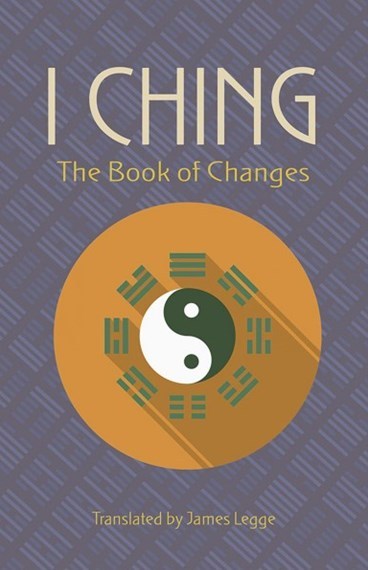
☯️📘🇨🇳 I Ching: The Book of Changes (one of the 5 Chinese Classics) translated by James Legge
#iching #bookofchanges #theiching #thebookofchanges #chinesefiveclassics #fiveclassics #chineseclassics #fourbooksandfiveclassics #taoism #confucianism #☯️ #🇨🇳 #📘 #mahditamashii #mahdikhalwachi
#i ching#book of changes#the i ching#the book of changes#chinese five classics#five chinese classics#chinese classics#four books and five classics#taoism#confucianism#☯️#🇨🇳#📘#mahditamashii#mahdikhalwachi#five classics
1 note
·
View note
Text
"Be loyal and trustworthy. Do not befriend anyone who is lower than yourself in this regard. When making a mistake, do not be afraid to correct it."
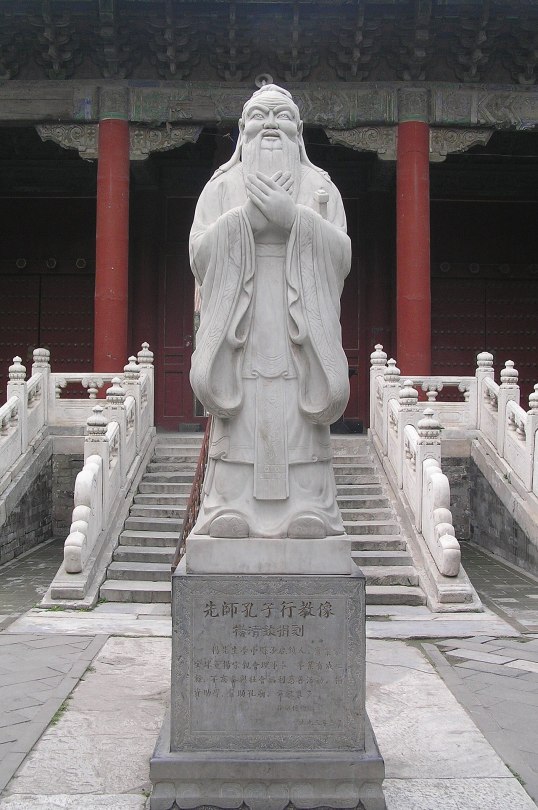
Confucius, born Kong Qiu was a Chinese philosopher of the Spring and Autumn period who is traditionally considered the paragon of Chinese sages. Confucius's teachings and philosophy underpin East Asian culture and society, and remain influential across China and East Asia to this day.
Born: Qufu, Jining, China
Died: Lu, China
Life and Times: Confucius, also known as Kong Fuzi or Master Kong, lived during the Spring and Autumn period of Chinese history, around 551–479 BCE. He was born in the state of Lu (modern-day Shandong, China) during a time of political and social unrest.
Founder of Confucianism: Confucius is considered the founding figure of Confucianism, a philosophical and ethical system that emphasizes the importance of moral values, social harmony, and the cultivation of virtue. His teachings are primarily compiled in a collection known as the "Analects."
Five Relationships: Confucius emphasized the importance of social harmony through the concept of the Five Relationships, which include ruler-subject, father-son, husband-wife, elder brother-younger brother, and friend-friend. Maintaining proper conduct within these relationships was seen as essential for a harmonious society.
Ren and Li: Two key concepts in Confucianism are "Ren" and "Li." Ren refers to benevolence or compassion, emphasizing the quality of humaneness and the importance of cultivating virtuous relationships. Li encompasses rituals and proper conduct, emphasizing the importance of social etiquette and moral propriety.
Legacy and Influence: Confucius' teachings have had a profound and lasting impact on Chinese culture, ethics, and philosophy. Confucianism became a central part of Chinese thought and greatly influenced the moral and social fabric of East Asian societies. Even today, Confucian principles continue to shape aspects of Chinese culture and governance.
#Confucianism#Analects#Chinese philosophy#Confucian ethics#Sage#Filial piety#Five Relationships#Ren (benevolence)#Li (ritual)#Xiao (filial piety)#Confucius sayings#Classical Chinese thought#Moral philosophy#Virtue#Social harmony#Education in Confucianism#Confucian values#Eastern philosophy#Chinese culture#Master Kong (Kong Fuzi)#quoteoftheday#today on tumblr
4 notes
·
View notes
Text
so like
we're all aware that the religion practiced in rain world by the ancients (iterators, and some of the slugcats by extension) is heavily inspired by buddism-- karma, reincarnation, ascension that leads to enlightenment where the need for the life/death cycle is past you now because you no longer feel suffering
five pebbles tells survivor and monk to go west.
west.
like in journey to the west? the great classical chinese novel, an allegorical journey about human perseverance?
in a game that is so incredibly difficult that beating it would require persistence?
was this intentional? did videocult know this? why haven't i seen anyone talk about this before?
im losing my mind right now
#rain world#broadcast.txt#YOU WILL SEE MY BRAIN BLAST#IM LOSING MY MIIIIIIIIIIIIND#fun fact lmk inspired a different hyperfixation into journey to the west as a whole#and istg if rain world is actually connected to that too i might actually lose it completely#like rain world doesnt have an op magic monkey to protect the monk but#all the enemies in rain world trying to eat you... like all the demons trying to eat xuanxang.....#granted lizards dont eat you for immortality but. immortal until proven otherwise huh#this post is about vanilla rain world it has nothing to do with downpour#downpour was not made by the same devs and the ideas present in dp are different#that's a different ramble for another time though
1K notes
·
View notes
Text
Welcome to another round of W2 Tells You What You Should See, where W2 (me) tries to sell you (you) on something you should be watching. Today's choice: 琅琊榜/Nirvana in Fire.
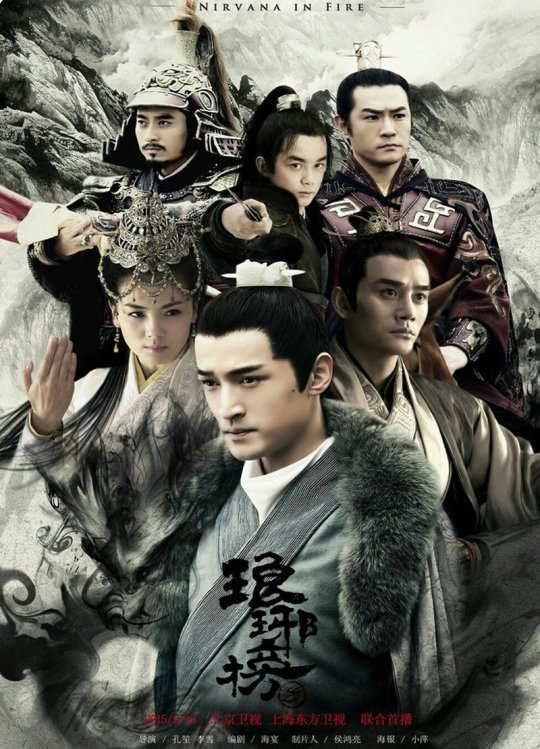
Nirvana in Fire is a 2015 historical series best described as either a complicated succession drama set in the premodern Chinese imperial palace, or the story of a man who didn't die a decade ago and has decided to make it everyone else's problem.
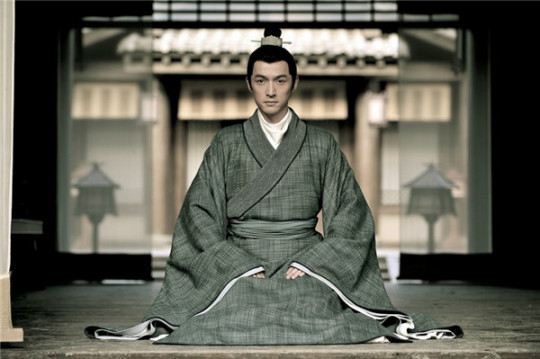
And really, I almost feel silly giving my glib little summary, because Nirvana in Fire is so well-known of a property. It's a classic for a reason, and that reason is that it's legitimately very good. This show is what happens when you adapt a solid story, get a bunch of very talented actors, and throw a huge amount of money at it. It's incredibly popular and highly acclaimed, and it earned all of the hype.
Still, while I bet there are few people adjacent to c-drama stuff who've never heard of Nirvana in Fire, I'm sure there are plenty who haven't watched it. After all, it looks like one of those slow, serious shows with a lot of ponderous talking and no joy. If that's the impression you've been given, I could imagine looking at the 54-episode commitment and saying, I don't need that in my life.

I am here to tell you you're wrong. It is a banger of a show. It's tense. It's funny. It's heartbreaking. It’s exceptionally clever. It’s jaw-droppingly stupid. It’s romantic. It’s tragic. It has smart plots and bizarre subplots. And that's not even touching the thing with the yeti.
So in case you're one of those people who's heard of Nirvana in Fire, but has put off watching it for one reason or another, I'm here with five reasons I think you should try it.
1. Epic Shit
Did you like the Lord of the Rings? More specifically, did you really like the second Peter Jackson film? Great, then you're all set for this.

I guess I could have called this Game of Thrones without the dragons, but that's not actually the vibe at all. Game of Thrones is much more sensational and salacious, with all the blood and butts and what-not. The Tolkien comparison is more apt, I think, because Nirvana in Fire is equally about as wholesome as you can get in a property where dudes are still getting stabbed all the time.
This is a show about vengeance. And yeah, justice for the fallen, sure, that's fine too. But mostly it's about a bunch of good people joining forces to make sure the bastards who did wrong pay, with their lives as necesary.
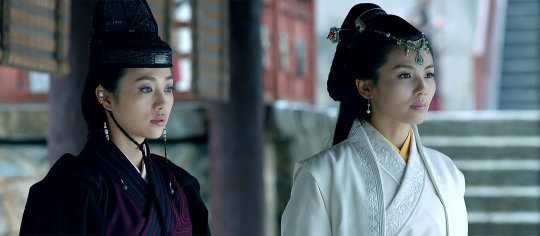
The problem, though, is that these bastards are incredibly powerful, which means that a pure brute-force approach isn't going to work. Accordingly, this quickly becomes a story about the power of smart teamwork to exact retribution on some people who can (and did!) legally get away with murder -- and our heroes are some of the people with their necks most on the line if anything goes wrong.
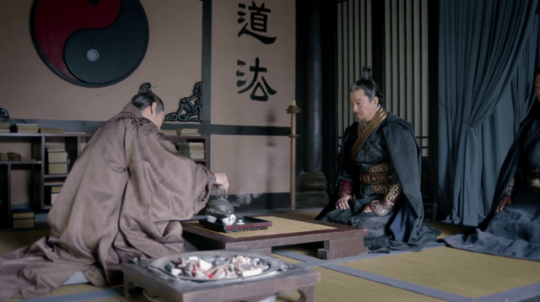
Don't let the Middle Earth comparison fool you into thinking this is all epic swordfights. It's not. (I mean, for one thing, as well-funded as this project is, it doesn't have Peter Jackson Money.) The vast majority of the tension in the show comes from dialogue and slow, terrible realizations. The fight scenes are almost a relief from the nail-biting intensity of intimate conversations about getting a letter from somebody's ex-wife or returning a book.
All told, the show has that incredible almost-RPG vibe of going through all the little subquests and cutscenes you find along the way to defeat the final boss. The plot carefully unravels a multi-tendriled mystery told to you by people in incredible costumes. It doesn't get much more epic than that.

(Nirvana in Fire is also a cautionary tale about how you should be very careful with who gets invited to your birthday party.)
2. A chronically ill protagonist
Okay, right in the first episode, it is established that the main character has three whole completely different names and an old nickname. I'm going to call him Mei Changsu for the duration of this rec post, but let the record show that I could just have easily gone with one of the other three.
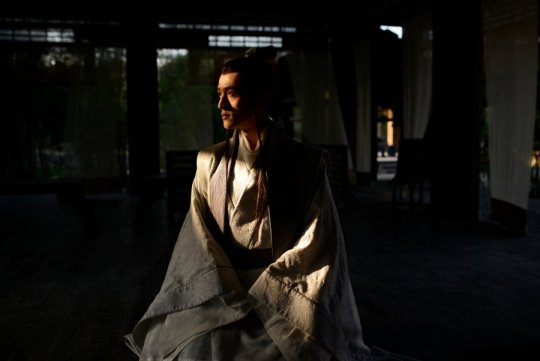
What you learn in that same first episode is that Mei Changsu used to be a palace insider, the cocky son of a noble family, only now nearly everyone he used to know thinks he's dead. Also, he's not far off from being actually dead -- he has an unspecified terminal condition that's mostly managed, provided he stays in his little mountain hideaway with his handsome doctor bestie and doesn't return to his old stomping ground and start kicking over hornets' nests.
So guess what he's about to do.
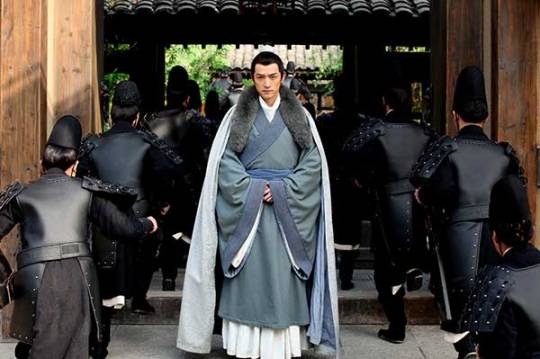
I have to make a note of how brilliant the casting is here: Hu Ge is an action actor! He is a kickpuncher of a man! And I think it's great that you can sort of see his frustration, as well as Mei Changsu's, at having to spend the whole series wrapped in countless layers of fabric and/or lying in bed while everyone around him gets to be the badass action heroes.
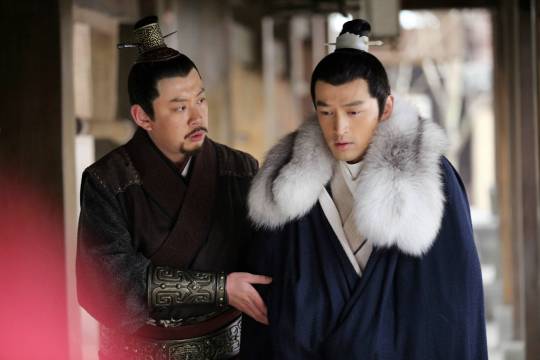
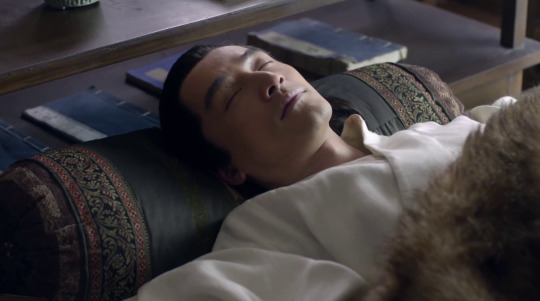
Mei Changsu's not faking it, either -- he's actually dying. He expends his energy where he thinks it's necessary, and sometimes that means he has to spend the following week in bed. He's constantly frustrated with himself for what he can't do anymore. He's racing a clock, and that clock is his own failing body. If he dies, the only hope anyone here has for justice dies with him.
He gets two love interests that the show treats pretty much equally. One's a lady general who wasn't even a love interest in the book. The other's the handsome prince who was initially going to be his textual romantic partner in same book, until the author hopped genres from danmei to general historical drama. I can't even call this a love triangle, because there's no competition. He just gets a wife and a husband -- in that he gets neither, because circumstances and his own illness keep him distant from them. He lies to both of then about his condition (among other things). He wants to be with them both and knows he can't be with either. And they in turn have to learn to accept what of him they can and can't have.
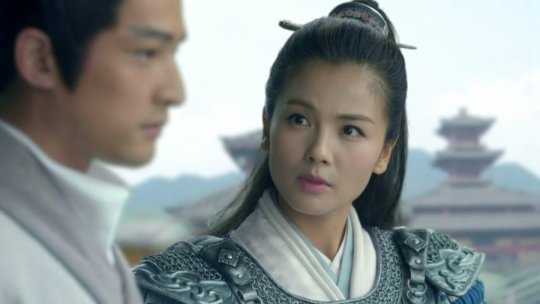

(Also, Nihuang (her) and Jingyan (him) are both incredibly gorgeous, which is exactly what bisexual genius Mei Changsu deserves.)
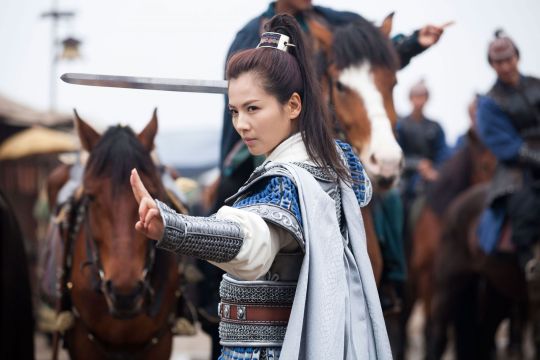
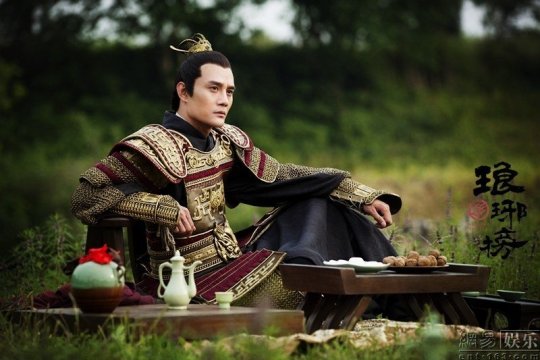
Obviously this isn't a perfect representation of life with chronic illness, largely because Mei Changsu is an incredily wealthy man who lives in a universe with what's basically magic medicine. However, I've seen the story's treatment of him and his condition resonate with a lot of chronically ill viewers, so even with the fantasy layer on it, there's definitely something there.
3. Dave
I have already told the story of how Meng Zhi became "Dave," but long story short, he's such a Dave that I legitimately forget his character's real name. He embodies Daveness. He's The Ultimate Dave.
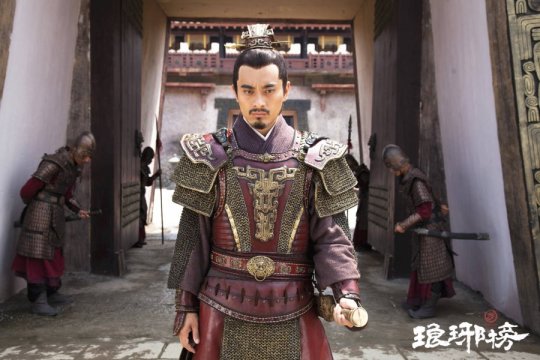
Dave is an excellent fighter, a loyal friend -- and a terrible liar. He's possbly the only straightforward character in the entire show. When he's asked to be duplicitous, he's comically bad at it. Dave will never do a heel turn. I was misled at first by his semi-evil facial hair, but I have seen the error of my ways. Dave is pure lawful good.
And the reason I list Dave as such a selling point is that having a Dave means you always know what's going on. This is because Dave never knows what's going on, and he has no ego about that, so he asks questions, and other characters have to explain to him what just happened, and that is how you figure out what's going on.
It's an incredibly smart move on the drama's part, because some of the (very fun) schemes are so complicated that there's no way for you, the viewer, to understand them just by watching. Without the internal monologues and omniscent narration of a book, the machinations are opaque. You need things explained -- but why would the schemers explain their schemes? Well, Dave needs some exposition, so here you go.
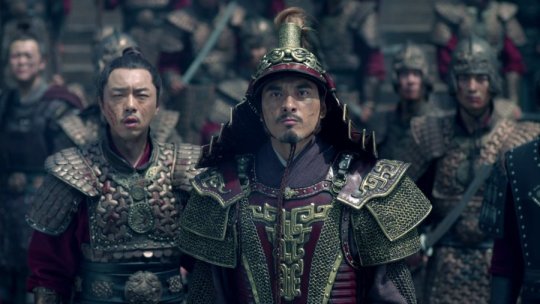
So if you're worried that you might be left feeling stupid by a show where so many sneaky people are hatching so many complex plans, worry not! Like the good man he is, Dave has your back.
4. A Million Amazing Antagonists
If you like bad guys, this is a show for you. This show has brilliant bad guys all the way down. It has bad guys at every turn. It has bad guys for every taste. Welcome to Big Liang's Big Bad Guy Emporium, where we guarantee you'll walk out of here with a bad guy you like, or your money back!
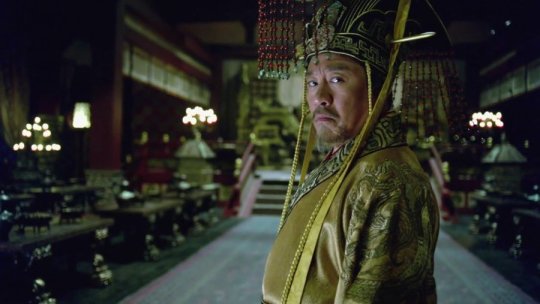
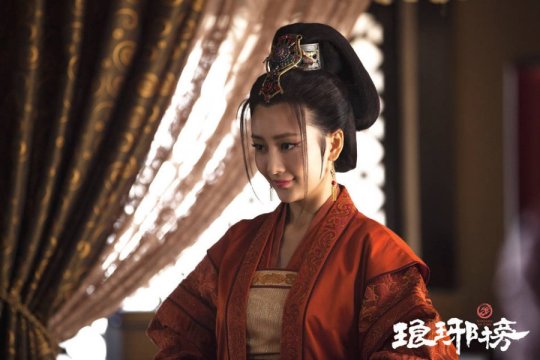

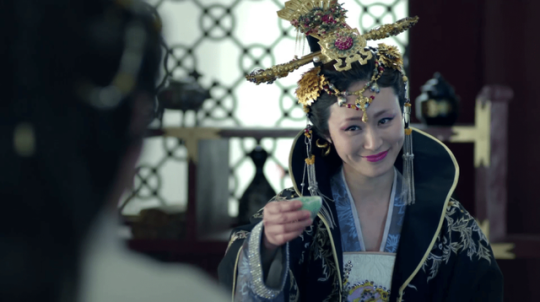
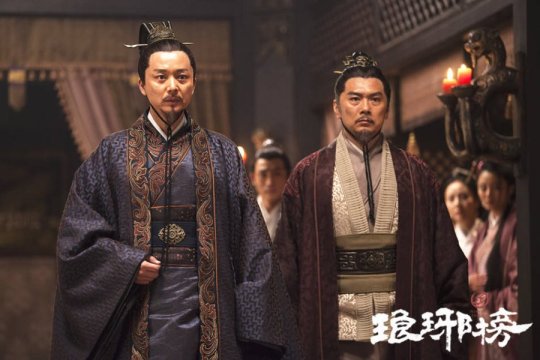
(And yes, this set of pictures is also to say that their costume budget was entirely well-spent.)
Without getting too far into spoilers, I will say that the basic situation underlying the whole series is this: The emperor has done a lot of bad things, and he has enlisted a bunch of people's help in hiding those bad things, so much so that many of those other people have done even more bad things the emperor didn't even know about -- and then everyone has gone to great lengths to cover those up as well. Our protagonists spend the whole series unraveling this colossal shitshow and bringing people to task for their crimes.
So really, if you're going to spend 54 episodes taking down the baddies, they've got to be baddies you love to see taken down. And these are -- in part because all of them have crystal-clear, rock-solid motivations for their actions. Nobody here is a moustache-twirling comic-book-villain baddie. They're all bad for reasons that are very understandable in their individual contexts. And not a single one of them is going to go down without a fight.
5. World's Best Mom
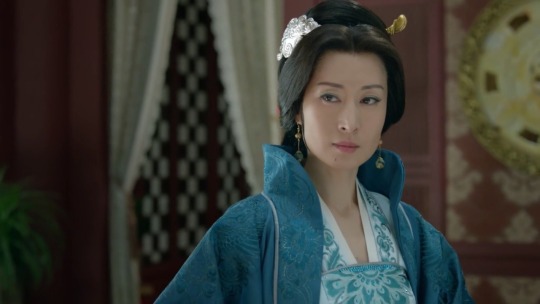
(Sidebar: The fact that four out of five of my reasons to watch the show are individual or groups of characters should be your strongest indicator that this is an intensely character-driven story.)
This is not a Dead Mom Show. Okay, some moms are dead, but mostly this is a Moms Are Alive And Often Cause Problems Show, which is a lot of what makes the palace drama so delicious. But there is one Good Mom who stands out above all the rest: Consort Jing.

Played with perfect grace and devastating politeness by the stunning Liu Mintao, Consort Jing is a skilled doctor and excellent baker who starts the show with a low-level status among the women of the palace. She swallows down all kinds of mistreatment because she's not in a place to oppose it -- and when she can retaliate, it must only be through soft power. She loves her jock son with all her heart, but because of both their relatively poor positions in the hierarchy, she doesn't get to see him all that much. She wants to be an asset to him, while all the time she has to fear becoming a liability.
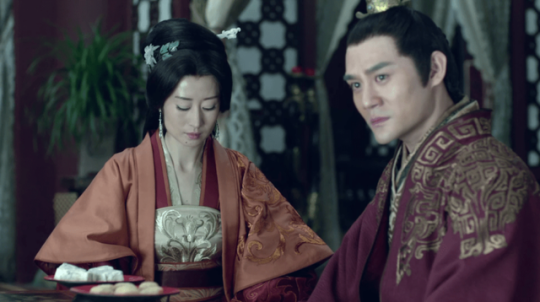
She is also the smartest person in any room that she's in, unless she's in a room with Mei Changsu, and even then it may be a tie.
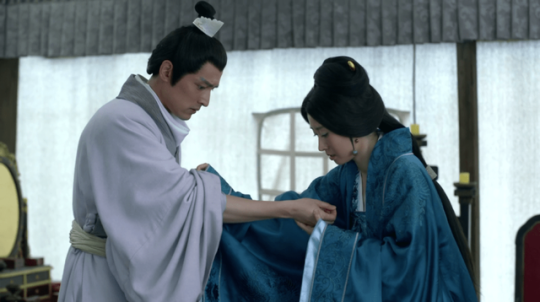
There are lots of great characters in the show that I could have highlighted here, and plenty of them are women, but Consort Jing in particular never ceases to impress me. She is trapped in a gilded cage, married to a man who [lengthy list of spoilers that are traumatic to her in particular], and held hostage by how every time she even looks like she's out of line, it puts both her and her boy in danger. She's the most vulnerable of any of our good guys. Kind of like Wang Zhi, she's got to be clever or she's dead.
Consort Jing is not part of Mei Changsu's original plan. She figures out his plan and makes herself part of it -- and entirely remotely, as she and he aren't even in the same room until episode 40 or so. She puts herself in great danger to make sure he succeeds, not because it will necessarily do her any good, but because Jingyan needs him. This woman has been captain of the Mei Changsu/Jingyan ship for like twenty years already.
Oh, and did I mention her outfits?
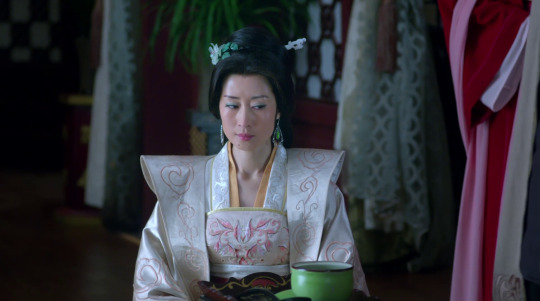
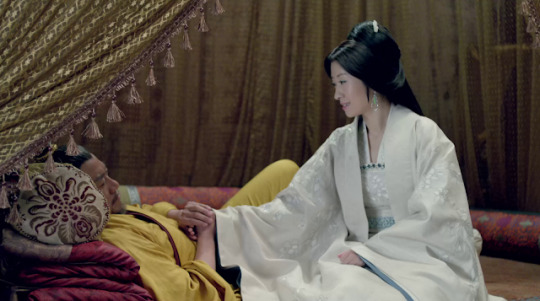
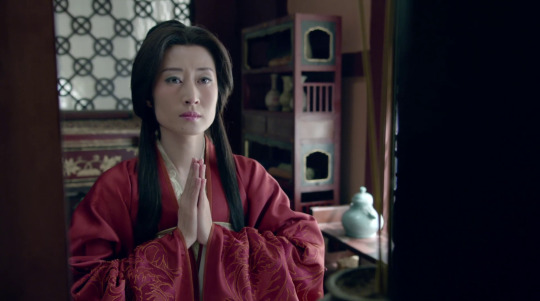
I love you, Consort Mom.
Are you ready to watch it yet?
Get it on Viki! Get it on YouTube! Get it on YouTube but in a different playlist! (And also maybe get it on Amazon? Not in my region, but maybe in yours.)
I will warn you that it does take off running -- I think I saw someone say it introduces nineteen characters in the first episode? I was worried that I'd be too innundated by situations and flashbacks and names to be able to follow. By the second or third episode, though, I was rolling with it. So if you feel like you're struggling at the beginning, stick with it a bit. See if you don't feel it start to click.
...Man, reading over this post has left me going, oh, but I missed that! and that! and that guy! And yeah, the truth is that there are just so many great things about the show that limiting myself to only five (and being limited to only thirty images) was tough. I'm sure that people reblogging will add their own must-see elements.
Truly, this is a show that deserves its reputation. It may not be for everyone, but if this is the kind of thing that you like, it is a shining example of that thing.
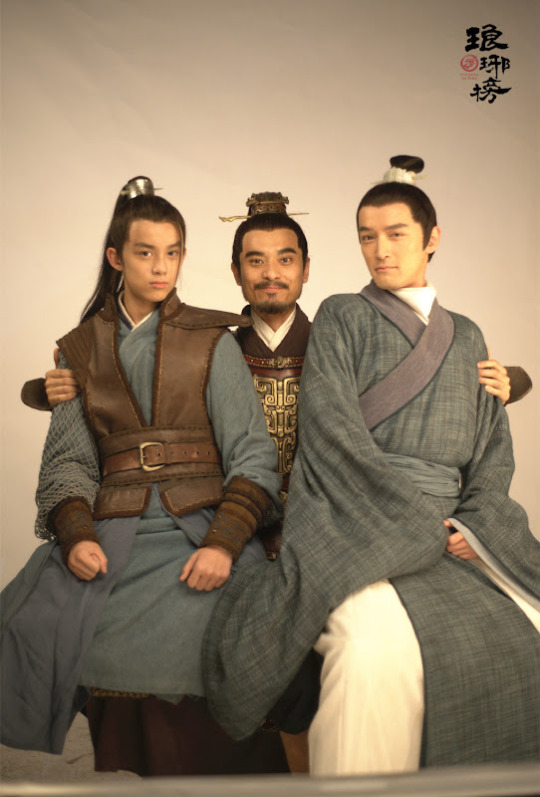
Besides, you have to love a production where everyone was clearly having just a whole lot of fun being big ol' costumed dorks.
379 notes
·
View notes
Text
[Hanfu · 漢服]Chinese Five Dynasties & Ten Kingdoms Period Traditional Clothing Hanfu


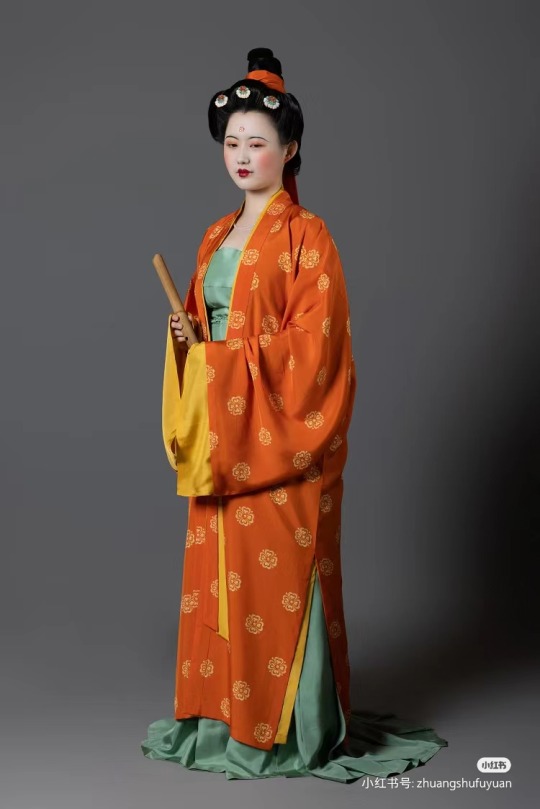


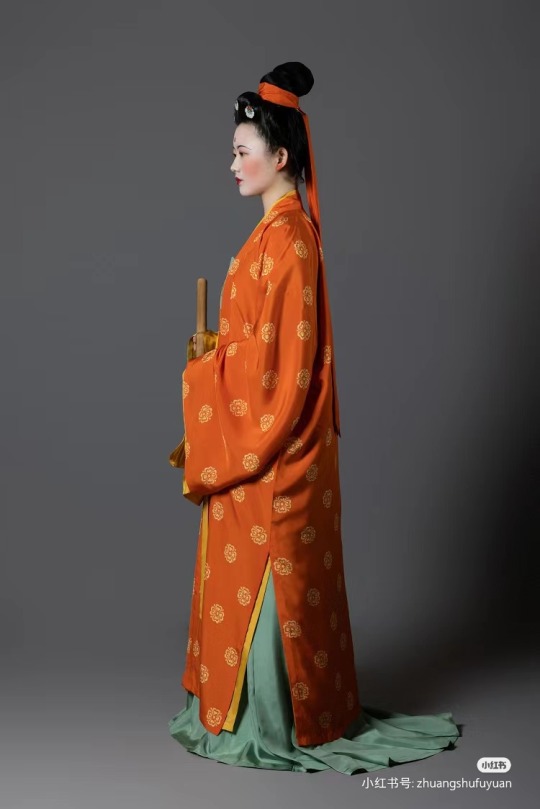
【Historical Reference Artifacts】:
Brick with portraits of people playing music and dancing unearthed from Feng Hui(冯辉)'s tomb,Bin County Cultural Collection, China.


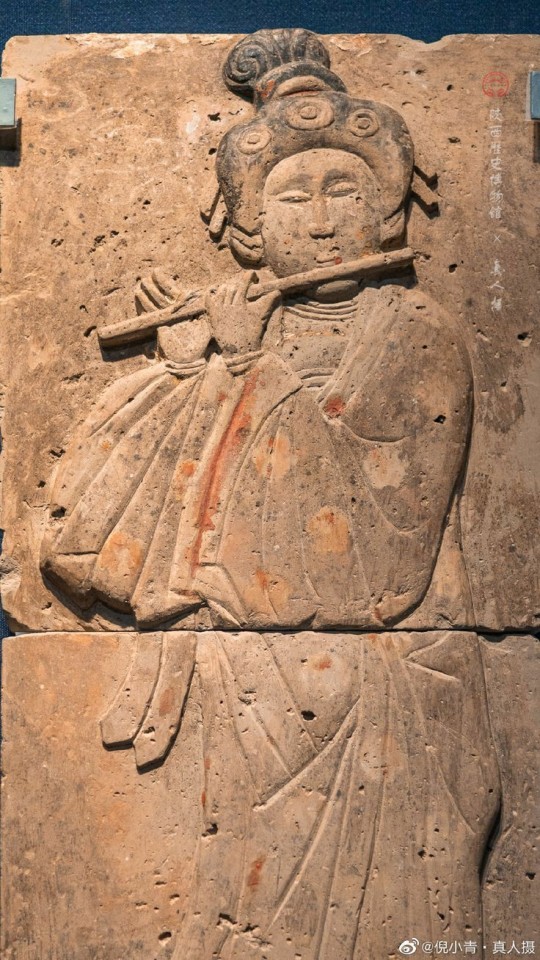
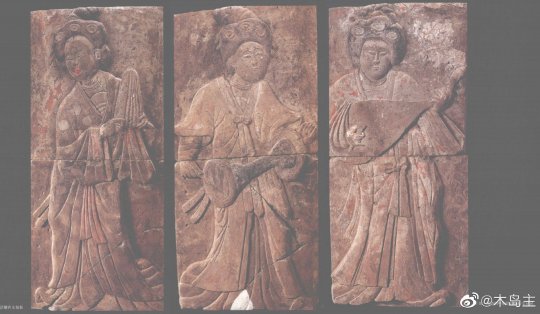
【China Five Dynasties & Ten Kingdoms Period Musician and Dancer Garment 】
During the Five Dynasties period, the development of costume art showed a trend like “hundred flowers bloom”
At that time, clothing styles were diverse and there were fewer restrictions and constraints, and bolder artistic exploration began. On the one hand, the development of fine arts and aesthetic theories during the Tang and Song Dynasties also injected vigorous vitality into the art of clothing; on the other hand, the skills passed down from previous generations gave clothing a richer and more diverse style.
These influences, inherited from previous dynasty, became an important part of the fashion at that time and gradually developed into a classic paradigm. Among them, the long-skirt style attire originated from the late Tang Dynasty is still widely popular and favored by women. When matching this type of shirt and skirt, they often wear their hair in a tall and unique bun, creating a taller and slender silhouette. This style was inherited from the late Tang Dynasty and incorporated into the new trends of the times, making it appear solemn and beautiful.
This garment refers to the brick carvings of Feng Hui's tomb and restores the image of musicians from the Five Dynasties and later Zhou Dynasties. Their hair is in a high bun, their temples are hugging their faces, their hair is tied at the top, and they are decorated with precious pearls. They wear blouses and long skirts, and appear to be light and swaying in their steps. They have the beauty of smart, pretty, harmonious and elegant rhythm.
#chinese hanfu#five dynasties and ten kingdoms period#late zhou dynasty#hanfu#hanfu history#hanfu accessories#Chinese fashion history#Chinese#chinese history#hanfu_challenge#chinese traditional clothing#china#chinese#Chinese hairstyles#漢服#汉服#中華風#chinese style#chinese art
265 notes
·
View notes
Text
Wuxing and Its Influence Over Sailor Moon
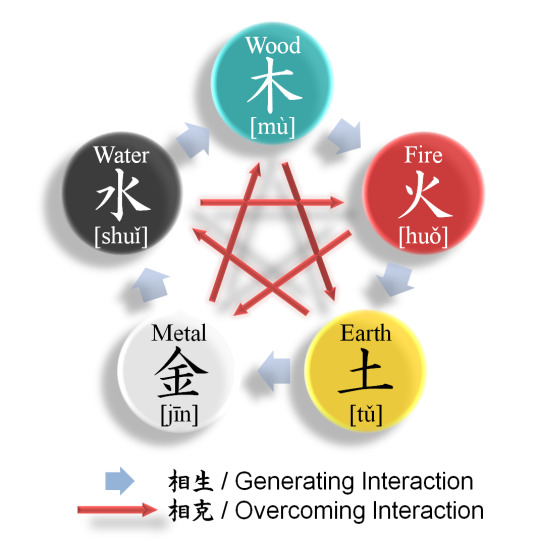
NOTE: if I get anything about wuxing wrong, please correct me! I did research for this post but I'm sure I greatly simplified things.
I don't recall seeing a post about this on Tumblr, so I figured I'd be the change I want to see!
Anyway, something I don't see discussed often in the Sailor Moon fandom is the fact that much of the Inner Senshi's powers and personalities are based on wuxing, or the Chinese system of Five Phases. Well, okay, technically wuxing influenced the Japanese naming system of the 5 planets known since antiquity (Mercury, Venus, Mars, Jupiter, and Saturn), as wuxing was originally used to refer those planets in ancient Chinese scholarship before it took on a broader meaning. But I still think Naoko Takeuchi was influenced by wuxing and not just the Japanese names of the planets themselves!
Anyway, you can kind of think of wuxing as similar to the Western idea of the classical elements, but it's far broader in scope. In traditional Chinese fields, it's used to explain a wide range of phenomenon, such as cosmic cycles and the succession of political regimes.
However, this post will only be exploring how wuxing is used to classify the planets and how that influenced Naoko Takeuchi when she created Sailor Moon. The elements and their planetary matches are:
Water: Mercury
Metal: Venus
Fire: Mars
Wood: Jupiter
Earth: Saturn
There are also certain mental/emotional qualities assigned to these elements:
Water: Wisdom, wit, intelligence, flexibility, resourcefulness, softness, anxiety
Metal: Determination, strength, ambition, self-reliance, strength of mind, rigid, leadership
Fire: Passion, intensity, resolve, spontaneity, dynamism, restlessness, hate
Wood: Warmth, generosity, idealism, cooperation, courage, kindness, anger
Earth: Patience, thoughtfulness, nurturing, honesty, stability, agreeableness
So yeah, I think there are some clear parallels here.
Sailor Mercury: Ami Mizuno means "Asian Beauty of Water" and Sailor Mercury has powers over water in all its states of matter (fog, water, and ice). I've sometimes seen people be confused over why Sailor Mercury has water powers when the planet Mercury is so hot and devoid of any semblance of water; well, it's because of wuxing! Anyway, Ami herself is also known for her intelligence and wisdom as well as for her soft heart.
Sailor Mars: Rei Hino means "Spirit of Fire" and Sailor Mars commands control over flames. Sailor Mars is known as the "Senshi of Flames and Passion," and lives up to that name by being one of the most passionate and intense Senshi in the series.
Sailor Jupiter: Makoto Kino means "Sincerity of Wood" and while Sailor Jupiter is commonly associated with electricity, her powers really encompass nature as a whole. In the manga/reboot anime, she has a number of attacks that involve plants. Mako is loved by her friends for being incredibly warm and generous, and Sailor Jupiter is known as the "Senshi of Courage."
Sailor Venus: Minako Aino's name ("Beautiful Child of Love") and her powers overall take much more inspiration from the Roman goddess of love and beauty, Venus, than from wuxing. However, she does still incorporate metal into her attacks, especially in the manga and reboot anime. In the manga/reboot this is done via her trusty chain, which is utilized for most of her attacks. Regarding personality, Minako is very self-reliant, ambitious, and determined, and of course is the leader of the Inner Senshi.
Sailor Saturn: There's not much to say here, because I don't think Naoko Takeuchi was inspired much by wuxing for Hotaru. However, "Earth" is reflected in Hotaru Tomoe's name- "Firefly Sprouting From Earth"- likely because the planet Saturn follows the wuxing naming convention in Japanese (it's called “Dosei," or "Earth Star"). That being said, Hotaru is very patient, thoughtful, and honest (I would not list "stability" as one of her qualities though, considering the whole "possessed by an evil alien and then reborn as a rapidly aging baby" thing lmao).
Anyway, that's it from me! I hope someone out there learned something new!
#sailor moon#bishoujo senshi sailor moon#analysis#my analysis#my writing#wuxing#chinese philosophy#philosophy#astrology#chinese astrology#sailor venus#sailor mars#sailor jupiter#sailor mercury#sailor saturn#minako aino#rei hino#makoto kino#ami mizuno#hotaru tomoe
171 notes
·
View notes
Text
MALL DATE - FREDDY FREEMAN
PAIRINGS: FREDDY FREEMAN X READER
SUMMARY: Your boyfriend, Freddy, decided to take you out to the mall for a date, regretting the decision instantly.
WARNINGS: Swearing, kissing, buying stuff from claires.

You stood in your room, adjusting your makeup for the millionth time, you didn't know why you were anxious, all you knew, Freddy was almost-.
The door bell rings.
Scratch that, he's here. You quickly took your bag, making sure your hair is perfect. You had dyed it your favorite color before your date. Why? Why not, that's the question. You ran down your stairs, luckily your parents were asleep on the couch, meaning they couldn't embarrass you. It was a habit of them.
You open the door to be welcomed by Freddy's warm smile. He was wearing a white vest with red linings and a white undershirt. He had red classical pants and a red jacket. He stared at you for a second, placing his hand on your waist before giving you a kiss.
"So what do you have planned lover boy?" You ask your boyfriend, he smiled before giving you another kiss, you smiled as you remembered where you recognized the vest. You were out once and saw it in a shop, telling Freddy you loved it and that he should buy it since it would make him look very attractive.
"Maybe the mall, I know you wanted to buy some new clothes and stuff." He shrugged, you smiled at him before giving him a kiss on the cheek. You walked towards the subway station, causing him to groan. "THE SUBWAY?!"
"WE MISSED THE BUS!" You yelled back, he groaned one more time before walking down the steps, you help him walk down, using your card to let both of you in. "I take the Subway home everyday anyways."
"Not anymore, I'm walking you home because this is fucking disgusting, he's actually not wearing any shoes now." He said pointing at a man sitting on the bench, he wasn't wearing any shoes, you groan at your boyfriend, rolling your eyes.
"I'll give you a kiss if you shut up and entered the subway." You said as the subway approached, he stares at you for a second.
"Wait, for real?" He asked you, you nod, him instantly walking towards the Subway. You giggled as you entered the subway behind him, luckily it wasn't that packed as usual and you found seats. "NO!" Freddy yelled, he quickly walked towards you, placing his jacket down. "Now you can sit."
"Really?" You scoffed as you removed the jacket, sitting down. He gasped, sitting down beside you, placing his jacket around you. "I'm not cold."
"Well the creeps here don't know that!" Freddy yelled, you laughed at him, giving him a kiss on his cheek. You took out your headphones, giving one to Freddy, you played your favorite playlist. "I like your hair by the way, it's really uh, hot."
"Thanks Freddy." You smiled at him, resting your head on his shoulder, you hummed out the rhythm of Lovers Rock by Tv Girl, one of yours and Freddy's favorite songs.
You smiled as you arrived at the mall, it was. five minute walk between the subway and mall and Freddy was complaining about everything.
The subway was disgusting Y/n.
I'm hungry babe. NO I CAN NOT WAIT.
God, my legs are DYING!
The first thing you did as you arrived to the mall was walk over to the food court, buying Freddy some McNuggets and some fries. He ate them quickly smiling again once he finished. He fed you some of his nuggets and fries, you decided to eat sone Chinese food instead, forcing Freddy to try it.
"He can't be your favorite hero! Red hood is an anti-hero." Freddy argued.
"A hot one." You added, he stared you deep in the eyes, you took out your phone, showing him a photo of Jason todd.
"Okay maybe a hot one, but Nightwing will always be better, I mean did you see his ass in titans?" Freddy joked, you laughed, giving him some noodles to shut him up. You ate the rest of you lunch, talking about some of your favorite movies.
Once your food was done, you entered a few shops, the gap, H&M, Zara, Bershka, then you found a claires. You instantly smiled, dragging Freddy into it.
"Babe, I love you, but no." He instantly said as you showed him a matching necklace. It was pink descending into purple, having the letter 'B' on a half and 'FF' on the other. You pouted, making his eyes widen. "No, you can't guilt trip me into buying it, you still didn't give me a ki-."
You kissed him to shut him up, he lagged for a second, you laughed at his facial expression. He grabbed the necklaces, walked up to the cashier and bought it. You smiled, instantly wearing it and helping Freddy wear his. You both walked down to Jennifer, since it had a 50% off sale.
"Babe, we've been trying clothes for hours!" Freddy whined, sitting outside the changing room. He was on the ground, reading another comic book. He looked up to find you wearing a batman shirt. He smiled at it, smiled at you. It was Similar to the one he had at home.
"What do you think?" You asked him. He just smiled at you, shaking his head in disbelief.
"I love it." He said, smiling, you nodded your head at the boy, you walked back into the changing room, changing back to your clothes. You walk over to the cashier, placing down 3 shirts, the batman shirt included, and two jeans with a jacket. Just as you were taking out your card, Freddy had already given the cashier his card.
"Fred." You rolled your eyes at him, he took the bags and carried them for you. You tried to take the bags from him, to make it easier for him but he refused. You spotted a bakery at the mall, quickly dragging Freddy to it.
"Does that mean we get to sit down?" He asked you, you rolled your eyes at him, he placed the bags on a table, ordering you two some desserts. He then came back, and sat down in front of you. He held onto your hand, looking up at you. "I love you."
"I love you too." You answered, the waitress soon passes by to give you the desserts Freddy ordered. A brownie, with cookies and your favorite flavored cake. "I'm in love with you."
Freddy laughed, the waitress came back, with two chocolate milkshakes. Your smile widened, causing Freddy to smile more.
This will by far be one if your favorite dates.
#freddy freeman#freddy freeman x reader#freddy freeman x male reader#freddy freeman x gender neutral reader#freddy freeman x female reader#shazam fanfic#shazam#shazam movie#shazam fury of the gods
326 notes
·
View notes
Text

The TRUTH behind the soul pieces
Preamble: I started writing this expecting nothing, but I actually found something??? not clickbait???? gone right???
Warning: the expected reaction of reading this is “damn. I’ve never seen someone grasp harder at straws” and “I dunno about this one chief”
So. "The soul pieces aren't exactly what we're told they are" is an idea I've had for a while now. (I wouldn’t even call it a theory, it’s just a passing thought.) Not that "they're manifestations of Haruaki's traits" is wrong, but I think there's more to them than immediately obvious.
I just haven't talked about this much because even I don't fully buy into it and it kinda verges on horoscope-type confirmation bias territory. It’s kind of a, I THINK there’s more to it but I don’t know what exactly is more.
A brief recap
First one shown is his "worldly desires", animal trio vs Seiryuu.
Second is his "freak athleticism", that Kurahashi's team and Ebisu just ran into.
With just these two he runs off to find Sano
Third is his "cowardice", found by Sano's team and Byakko, which gets away and hides in Sano's pocket.
Fourth is his "memory", originally found by Hijita's team and Genbu, which gets picked up by Genbu and then the whole Heian flashback happens.
And last is his "intelligence", which for some reason is also the one that can use his exorcism power.
So immediately a couple details stood out to me.
Why is "memory" here?? I wouldn't call that a trait exactly??
Also, when it first broke apart and flew off in five directions, it's specifically pointed out that it's "like a five pointed star" (even though it's not really if you look at the actual locations on a map lol)
And the sticking point, if it was as clean and simple a split as “Haruaki’s traits”, why do the traits bleed into each other? “Athleticism” is into sailor uniforms too, and “Cowardice” and “Intelligence” are pretty quick by themselves. Also, even without his “Memory” at the time, he remembered that conversation with Seimei in ch87.
The five pointed star detail, considering everything in the arc heavily relates to the Four Gods and Seimei's star, which relates to Wuxing, almost begs to be referencing that too.
What is Wuxing?
Wuxing, five elements, five phases, gogyo, whatever other name for it: I’ve talked about it briefly in my Kyoto arc analysis

(Wait. Is this actually all I mentioned regarding Wuxing in that analysis???? This tells you nothing!!)
(Tbh I think I had a longer explanation about it but I cut it because I thought it was irrelevant)
Wuxing 五行, roughly translated as five elements or phases, is a concept that comes from Taoism. The five elements are Wood, Fire, Earth, Metal and Water and describes the interactions between them. Here’s the wikipedia page if you really want to get into the details.
The “xing” means movements/moving, and the entire concept of Wuxing comes from the five classical planets’ (Mercury, Venus, Mars, Jupiter, Saturn) movements affecting… things? In general? (It’s horoscopes)
In fact, the names of those five planets in Chinese and Japanese are tied with the Wuxing:
Mercury = 水星 water star
Venus = 金星 metal/gold star
Mars = 火星 fire star
Jupiter = 木星 wood star
Saturn = 土星 earth star
You’re taught these as a kid but not the reasoning behind it (because it’s hella irrelevant lmao) but I guess it kinda makes instinctual sense? (Venus = yellow, Mars = red, Jupiter = stripes, like tree rings?? Saturn = brown. Mercury = it looks like there’s rivers? idk how much detail they were seeing in the BC times)
And just to sate curiosity, the planets that were discovered after telescopes were invented are just based off the English names
Uranus = 天王星 sky god star
Neptune = 海王星 sea god star
Pluto = 冥王星 underworld god star
By the way, this is also why the days of the week are named after elements in Japanese; it’s not actually the elements, rather it’s referring to the celestial bodies: those 5 planets + the moon and the sun. It’s the classical Chinese system that Japan adopted around the 5th century AD, and they haven’t changed it since then. (Chinese uses stuff like “weekday 1” for monday now.) And China itself adopted the Greco-Roman system of the 7 day week, days named after celestial bodies around the 4th century AD, which is also why the planets and days line up if you look at the English and Japanese names now.


Would be crazy if they independently decided to have 7 days in a week and name days after celestial bodies and assigned the same planets to the days huh.
(Also, TIL from looking at this chart that the sun (taiyang) is indeed called that because it’s the “great yang star”, and the moon is called the “great yin star”, you know, like yin-yang)
I’m remembering why it’s so hard to research and write about this stuff now. Everything is so inextricably connected to everything else its hard to talk about one thing in isolation. Thanks for indulging my astronomy tangent I love astronomy.

(I always got saturn on da mind when I think about Seimei cus of this art…)
The only useful part of this essay
So. Wuxing. Here’s a pretty standard diagram of it so it’s easier to visualise

There are five types of processes Wuxing describes:
Generating: Wood feeds fire
The reverse side of generating: Fire burns wood
Regulating: Wood grasps earth
Excessive regulating (destruction): Wood depletes earth
The reverse side of regulation (exhaustion): Earth rots wood
And here’s a full list of it, from wikipedia
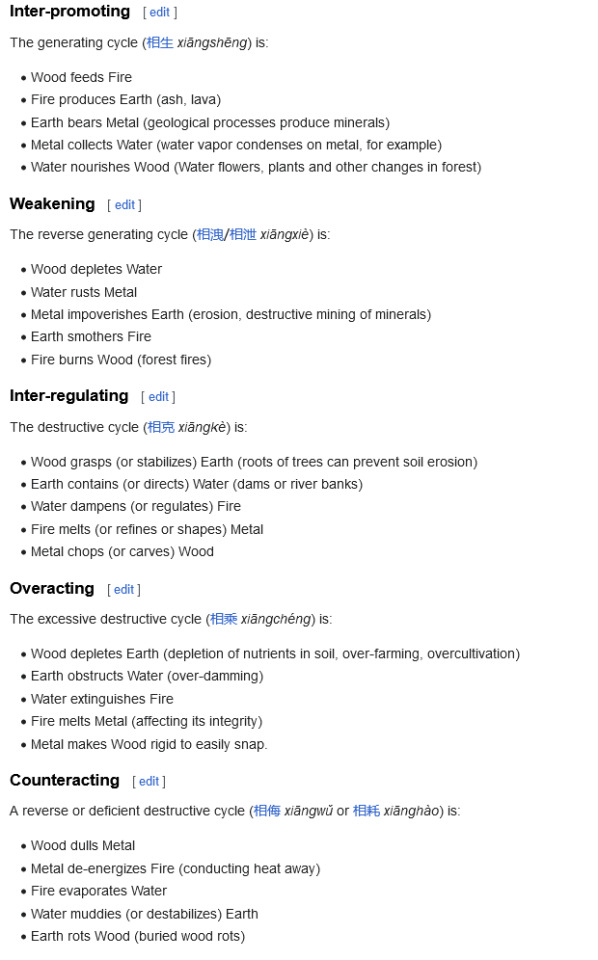
With this in mind, you’ll notice that it pops up all over the place in Kyoto arc!
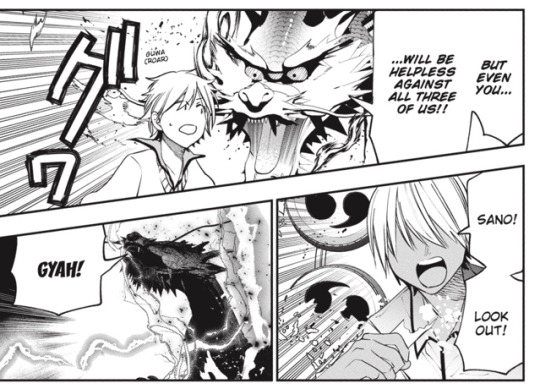
If we take lightning as aligned with metal (because Byakko = metal = lightning user), this is the regulating interaction of metal -> wood
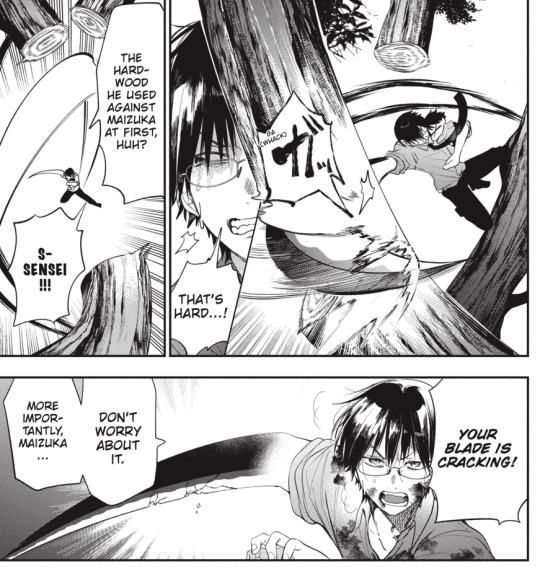
Metal cuts wood, but wood also dulls metal

Water… nourishing wood….???

Water destabilizes earth
(“This is just pokemon lol” WRONG!! Pokemon types and every other element system in videogames came from Wuxing!! (Or Godai))
Back to the soul pieces
So you see, it’s incredibly tempting to connect the five soul pieces with the five elements of Wuxing. It’s basically begging for it. The Wuxing has been associated with lots of things that come in sets of five, including things like senses, tastes, smells, emotions, mental qualities, periods of one’s life, body parts. It has applications in divination and traditional chinese medicine after all. If there was a clear, 1-to-1 match between the soul pieces and the elements, you bet I would have talked about it more by now. But the connections are tenuous at best, and even I don’t really believe it. They might, probably, just be the traits we’re told they are. So this really is just to humor myself, and maybe someone can glean something more from this.
Let’s lay out the things surrounding the soul pieces:
“Desires” was at Arashiyama (a bamboo forest) and Seiryuu was present, both associated with Wood
“Athleticism” was at Ginkaku-ji (silver pavilion), none of the four gods were present, no obvious element associations here.
“Cowardice” was at Mount Kurama (mountain = earth?), Byakko was present (metal?)
“Memory” was at Kiyomizu-dera (clear water temple), and Genbu was present, water association
“Intelligence” was at Kinkaku-ji (gold pavilion), and none of the four gods were present initially. (gold = metal?)
The other thing I’ve yet to mention is all the soul pieces seem to be of different points in Haruaki’s life. (Well. Four of them at least.)
“Desires” and “Athletics” seem to look and act younger (as much as you can tell with chibis…), both wearing simple t-shirts, and “Athletics” t-shirt and shorts look like what Haruaki wore as a kid in the Miki arc flashback. Adding on to that, we’re constantly told how into sailor uniforms Haruaki was as a little kid (literally whenever his childhood gets brought up: Mamaaki talking about it in ch8, him saying his first cry as a newborn was “sailor uniform” in ch43, the ch51.5 extra) (ok to be fair. his sailor uniform fetish gets brought up at every opportunity. but i feel like it’s Pretty emphasized here) Also I feel like “Desires” especially talks like a kid.
Meanwhile “Cowardice” and “Memory” are dressed the way he currently does, and “Cowardice” seems to parallel the way Haruaki was at the start of the series. It’s Sano’s team that runs into him, he acts like how Haruaki did early on just amped way up, and he ends up hiding on Sano.
IQ-kun… still don’t know what to make of him and how he fits into this lol
Put like this, doesn’t it almost seem like, in the order they appear, they represent points in Haruaki’s life too?
Or, this could all be nothing, because they’re all wearing the same thing in the jacket for Volume 14.

So anyway, from this angle, it seems like Desires and Athletics line up fairly cleanly with Wood and Fire respectively, but Cowardice, Memory and Intelligence are a little murkier. Cowardice only somewhat lines up with Earth, and both Memory and Intelligence could align with Water, while Memory could also be Metal. (I dropped the quotation marks bc they were getting distracting)
Here’s a diagram to illustrate.

(See it’s kinda, pick-and-choosey, horoscope-type shit)
Immediately a couple problems arise. First and most majorly is the horoscopey-ness of it all. And then there’s the matter that, if the four gods represent four out of five of the elements and earth is the outlier, wouldn’t it also make sense if IQ-kun as the outlier would be assigned that?
There’s also the possibility that the first four are a set, and IQ-kun makes up the “yin” to the rest of Haruaki’s “yang” (But then what would the first four correspond to individually? idk….)
We’re getting nowhere with this analogy, so let’s look at some adjacent philosophies in sets of five, just for fun, and see if they line up any better.
Traditional Chinese Medicine
This one is the most related to Wuxing, there are five main “organs” in TCM that have associated Wuxing elements. They might be called the same names as the anatomical organs, but they’re actually more like concepts only roughly correlated with locations on the body. This is stuff codified thousands of years ago before modern knowledge of the human body, mind you.
Heart (fire): stores the “aggregate soul” (the mind)
Spleen (earth): governs transportation of qi and blood, and governs muscles and limbs
Lung (metal): stores the “po 魄” (physical soul)
Kidney (water): responsible for willpower or fear
Liver (wood): governs free flow of qi, blood and emotions. Stores blood, which stores the “hun 魂” (ethereal soul)
(The wikipedia page I linked has more in depth descriptions)
And if we sorta line up the attributes…
Desires = Liver/wood
Athleticism = Spleen/earth
Cowardice = Kidney/water
Memory = Lung/metal
Intelligence = Heart/fire
Something like this? It doesn’t line up particularly nicely either, and certainly doesn’t line up with the first theory…
But reading up on this actually brought something useful to my attention: the concept of “hun” and “po”
See, there’s this Chinese compound word “hun po 魂魄” that generally just means “soul”, but if you get really semantic they’re two different types of souls?
The “hun” is the yang-aligned “ethereal soul” typically understood as the wits/mind of a person, whatever constitutes the personality, and is the part of the soul that leaves the body on death.
The “po” is the yin-aligned “physical soul”, sometimes described as the “baser animal spirit” of a person, and is attached to the body.
This could explain why Haruaki’s soul is also Seimei’s soul, but also Seimei is in the underworld?

This scene I got real hung up about in my Kyoto arc post?
It lining up and being a reasonable explanation is one thing, but whether sensei is deliberately referencing a property of Chinese linguistics that doesn’t have an equivalent in Japanese kanji is another thing. And honestly, I could see Tanaka “I’ll have to read up on Chinese history, but off the top of my head Byakko and Seiryuu are from 4000BC and Suzaku and Genbu are younger” Mai could and would do it. (Good god, what I wouldn’t give to see sensei’s notes. Yohaji fanbook explaining every cultural reference PLEASEEEE IM BEGGINGGG)
Godai
Godai (“the five great (elements)”), while also a thing with five elements that features prominently in Japanese culture, differs from Wuxing in that it originates from the concept of Mahābhūta in Indian Buddhism, and features Fire, Water, Earth, Wind and Void. It’s a more inert definition and describes the elements as building blocks, contrasting with Wuxing which is more concerned with the balancing and interaction between the elements and the changes they cause in each other.
Godai also isn’t ever depicted as a star (and Wuxing is only depicted as a star as a byproduct of all the arrows denoting the interactions, sometimes the 5 elements are arranged like the 5 side of a dice with lines connecting everything) and is typically depicted as a Gorinto, a stone structure.
In order from top to bottom, it goes Void, Wind, Fire, Water, Earth, and represents the structure of the universe in Buddhism.
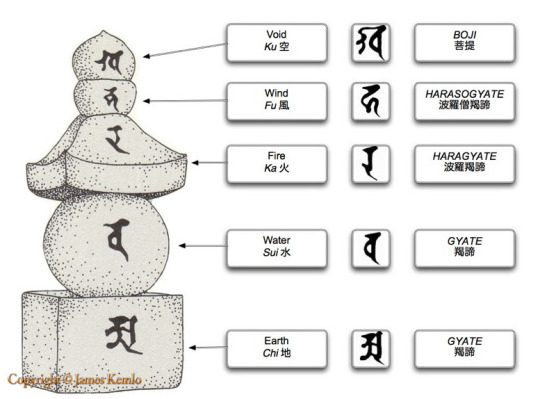
So. Attributes and if they line up any better.
Earth: unmoving, stability
Water: fluidity, adaptability, motion
Fire: passion, power, energy
Wind: growth, freedom
Void: the spirit? thought? there’s not really a clear description of this one. To begin with, originally in Buddhism, it’s just said that “from void emerged air, from air emerged fire, (etc)”
I could see wind = Memory and void = Intelligence, but the rest… I dunno man
The five aggregates in Buddhism
And now, following the thread back from Godai, to the Buddhist concept of Skandhas, or the “five aggregates of clinging”, described as the five factors that make up a sentient being’s personality. (Hey, this sounds like it could be onto something here!)
The five aggregates are:
Form or matter: the material form of a person
Sensation or feeling: the five senses + intellectual sensation, and the feelings that occur whether pleasant, unpleasant or neutral
Perception: cognition and recognizing what has been previously noted
Mental formations: dispositions, or something that motivates a person to take action (or sometimes described as the influences of a previous life?!)
Consciousness: cognizance, or the base that supports experience, sometimes translated as mind, intelligence or life force
Wait… This kinda… lines up…? No way…?
Form = Athleticism
Sensation = Cowardice
Perception = Memory
Mental formations = Desires
Consciousness = Intelligence
This… kinda works? They all basically line up and it’s not too tenuous, and there’s enough matching details in the descriptions of the five aggregates that it’s kinda scary…?
I’ll be real, prior to writing this section I hadn’t actually read the descriptions of each of them too carefully (I had the tab open and roughly noted the descriptions kinda worked) and I entirely expected to end this essay with a “in conclusion: no conclusion i learned nothing lol” but there’s actually something here????
And Tanaka Mai is known to reference Buddhism a lot, so this could entirely be intentional…??? I’m kinda shaken rn tbh
I mean, I guess I should have looked to Buddhism first considering sensei’s track record, what with how the arc opened with Haruaki getting put under a waterfall to get rid of his worldly desires, and how 3 out of 5 locations were Buddhist temples, but Buddhism concepts usually use their Sanskrit names and I don’t know how to google for that… (making excuses. classic)
Um. Hope you enjoyed reading this and that you learned something? Here’s all the relevant wikipedia pages if you want to go down your own rabbit hole:
Wuxing (Chinese five elements)
Godai (Japanese Buddhism five elements)
Mahābhūta (Indian Buddhism five elements)
Hun and po (two concepts of souls)
Skandha (five aggregates that make up a person)
Twelve Nidanas (didn’t mention this one, but it’s related to skandhas)
If you read all this you should read all my other long rambly things too if you haven’t, they’re all under the #rambles tag 👍
#youkai gakkou no sensei hajimemashita#a terrified teacher at ghoul school#yohaji#rambles#analysis#i had a whole character arc writing this#there was ups and downs
81 notes
·
View notes
Text
10 Things I Love About Khun Chai
I did it, y’all. I watched my first lakorn, and let me tell you, I had a fucking fantastic time doing it. Now that’s not a blanket endorsement of the genre, because I understand Khun Chai aka To Sir, With Love is pretty unique, particularly in that it’s a period queer love story with a happy ending. But as a different kind of Thai drama than any I’d previously seen, it was truly a great watch.
It has some flaws, sure. It’s a soap opera, so melodrama, repetitive story beats, overdramatic acting, and slow pacing are par for the course. If you go in understanding that, you’ll be fine. And the episodes are long af but don’t be shy about increasing the playback speed - I watched a lot of it at 1.5x and it was perfectly smooth. Now that I’ve finished it, I think the time investment was totally worth it (@bengiyo my final rec - worth going back to finish! It worked better for me when I broke it up in chunks of 2-3 episodes at a time).
Without further ado, the top ten reasons I loved it:
1. TIAN MY BELOVED
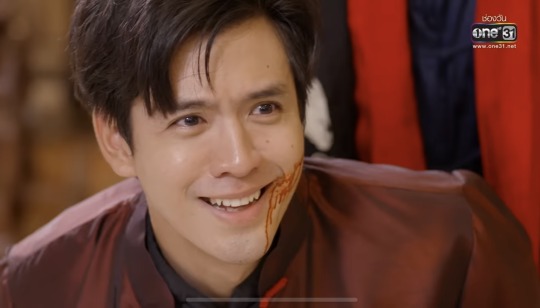
Look at him. Just look at his beautiful traumatized face!! I hold that it’s impossible to watch this entire show and not come out absolutely loving this man. He is so believably flawed but at his core he is good. He is generous. He is loyal. He is brave. And he looks very good in a three piece suit.
Honestly I could do a whole top ten list just about Tian but let’s move on and give some love to the rest of the show.
2. Did I mention this is a PERIOD ROMANCE??!! Something we get so precious little of in bl. I asked @absolutebl a while back if they knew of any other Thai period bls, and this was the entire list. So good thing it’s excellent!
The show is set in the 1930s and 40s in Japanese-occupied Thailand, and it centers on a powerful Thai-Chinese family (currently leading a cooperative partnership of five families) and the power struggle over who will be the heir (Succession, but make it Asian and queer). The show digs into really interesting family structure, politics, and class struggle stuff.
3. The brotherly bond is unmatched and undefeated. The plot centers on two brothers, Tian and Yang, who love each other so much, like I cannot emphasize enough how willing these brothers are to protect and die for each other. If someone was shooting at them they would both try to dive in front of the bullet. Their bond is so touching and provides an emotional through line when the plot gets wacky.
4. The classic soap opera plots are truly brilliant, all your favorite tropes are here. This show has everything - family secrets, nefarious schemes, murderous maids, mystical poisons, faen fatales, even sex pollen! As I believe @ginnymoonbeam put it at one point - everything is happening so much all the time. It’s truly a delightful romp, especially after the halfway point when the plot machinations really kick into high gear.
5. The queer love story is the main romance and emotional heart of the show. There are actually two romances in this show - each of the brothers gets a love interest. And both of them are lovely. But rather than the typical move where a het drama features a queer side pairing, here the entire story is driven by Tian’s sexual identity, the burden placed on him to keep it a secret, and how increasingly impossible that becomes once he meets Jiu. Over the course of this show, we get to watch Tian fall in love and finally live his truth and see how that changes him. It’s truly beautiful, and the romance between Tian and Jiu is so sweet (and a bit racier than I expected - the show does not shy away from the sexual aspect of this relationship). The romance between Yang and Pin is also very sweet - they are adorable tbh - but entirely secondary.
6. Every frame of this show is absolutely gorgeous. The scenery is lush, the costumes are beautiful, the tailoring is impeccable, the hair and makeup never misses. It’s truly a feast for the eyes.
7. There are so many good female characters in this show, y’all! Tian and Yang have not one but 4 or 5 different mother figures. They are all flawed, complex, and a little nuts. They get up to so much trouble and drive a lot of the plot with their scheming, hijinks, and prolific wielding of murderous sparkle dust (don’t ask, you have to see it to understand). Pin, Tian’s would be fiancé turned sister-in-law, is a total sweetheart, but she’s also smart and fierce with a steel core and not afraid to tell her man when he’s being stupid. There’s even a lady boss at the head of one of the five families.
8. Relatedly, there is so much complex family drama in this show, and so many interesting dysfunctional parental relationships. @waitmyturtles you will have a field day when you finally get to watch this. Both brothers have fraught relationships with their various parent figures, for very different reasons. The various relationships and resentments that form between the wives and the sons in a polygamous family unit (did I mention that yet? there are three wives in the mix here and the brothers have different biological moms) are absolutely fascinating.
9. The resolution to the succession plot and ultimate defeat of the Big Bad was so satisfying. I won’t get into spoiler territory, but let me just say that the characters went through a lot together and to see the way they ultimately had to come together and let go of their baggage to survive was very cool. It felt earned.
10. IT ENDS WITH A BIG OLD HEAP OF GAY DOMESTIC BLISS!!! I will get into spoiler territory here because you deserve to know that if you put in the time to watch this show you will be rewarded with a very happy couple forming a family unit and living peacefully on their own terms. I was so pleased with this ending, I can’t even tell you. The final scenes made me cry real tears, I was so touched. And they even put a literal rainbow in the sky at the end. A literal rainbow! Come on!
Watch it, friends! It’s worth your time.
223 notes
·
View notes
Photo

Qiongqi Beast, one among the four legendary primordial beasts of China - Namesake of Qiongqi Path (MDZS) - The foreshadow of Wei Ying’s death. - Illustration by Shan Zhe, published in Guan Shan Hai, the compiled and edited version of the OG Shanhai Jing, by Hunan Literature and Art Publishing House.
Recently I got my hand on Shanhai Jing (Classic of Mountains and Seas), the 2200+ years old classical text on Chinese fantastical flora, fauna, beasts, strange people, and gods. Qiongqi is counted among Shanhai Jing menagerie. Below is my translation of the description of Qiongi Beast directly from Hunan’s Shanhai Jing.
窮奇 (Qiongqi)
- Text directly from the 2200+ year old Shanhai Jing: Qiongqi has the shape of a tiger with wings. It eats human, starting from the head. Those who it eats all have their hair unbound. It lives North of the Peach Dog’s den.
- Modern Anthropologist Notes (by Hunan Publishing House’s editing team):
1/ Qiongqi beast has the shape of a winged tiger. It is a vicious man eater. When it eats, it starts from the head. Those who are eaten by it all have their hair unbound.
2/ Qiongqi also appears on Xishan Jing (Classic of Western Mountains), where it is described as ox-like, with porcupine quills, and barks like a dog. This description is vastly different from the one in Shanhai Jing.
3/ Qiongqi is mentioned in many ancient texts. In the Records of the Five Emperors, Qiongqi is said to be the hideous, good-for-nothing son of Shaohao (son of the Yellow Emperor, one of the three legendary ancient emperors of China) (*). It is said to destroy those who are loyal and faithful and fawn over those who are deceitful and perverse.
(*: In other words, Records of the Five Emperor claims that Qiongqi was a human prince who fell to beasthood out of wickedness)
4/ Both the Records of the Five Emperor and Shenyi Jing (Classic of Strange Gods) agree that Qionqi is an evil beast that has completely reversed concept of good and evil. Shenyi Jing notes that Qionqi eats those who are good, honest, and loyal and will aid wicked liars.
- End Translation -
.....................................................
Symbol of Qiongqi in MDZS:
If you have read MDZS, then there’s probably no need to repeat the name Qiongqi Path. The symbolism is readily apparent.
Qiongqi Path is the site where Wei Ying was repeatedly forced onto a death path by Jin schemes. The first time was when he rescued the Wen remnants (who were forced to move from a neutral territory Ganquan 甘泉 to Qiongqi Path, controlled by Jin after the Sunshot campaign, as per the novel). And the second time was during Jin Zixun’s failed ambush.
In other words, Wei Ying’s death was foreshadowed in the name of the location itself. Qiongqi beast destroys and eats the good, honest, loyal person with hair unbound. It eats from the head down, symbolizing the loss of agency and ability to call for help or argue the person’s own case. Wei Ying was symbolically eaten by Qiongqi.
If you want to look further, there is also correlation between Qiongqi’s origin as a human prince associated with the color yellow who fell to beasthood out of wickedness and the Jin’s origin as a cultivator House founded by royalty and whose primary color is yellow.
185 notes
·
View notes
Text
Yu the Great and Sun Wukong's Staff
This is my answer to the following reddit question:
Did the Ruyi Jingu Bang, as a tool used by Da Yu, exist before the novel?
Monkey's golden-hoop iron staff can be traced to the khakkhara and iron rod respectively used by his precursor in the 13th-century JTTW. The story doesn't mention anything about Yu the Great. The demi-god's connection to the staff is, as far as I know, unique to the standard 1592 edition of JTTW.
This association probably came about in a couple of ways. For example, there is a Chinese graphic similarity (and possible totemic connection) between Yu and a specific kind of monkey:
The generic Chinese primate names have identical pronunciations or spellings to those of the earliest Chinese emperors. For instance, the character 猱 (Nao) is considered as the ancestral name of the royal family of Shang dynasty (商朝 ca. 1600–1050 BCE) (Cao, 1997; Wang, 2001). This word is used to denote a primate species that is good at climbing. Similarly, the character 禺 (Yu) represents a long-tailed monkey. This word is the same as the character 禹 (Yu), a legendary emperor well known for his brilliance in regulating floodwater (Huang, 2011). This association between primates and the earliest emperors indicates a possible totemic status for primates (Niu, Ang, Xiao, et al., 2002, p. 91).
(The aforementioned Yu (禺) monkey was apparently well-known, for it is referenced several times in the Classic of Mountains and Seas (Shanhai jing, 山海經, c. 4th-century to 1st-century BCE), a popular Chinese bestiary, in order to indicate the shape and size of certain primate-like animals (Strassberg, 2002, pp. 83, 84, 91, 99, 104, 122, 123).)
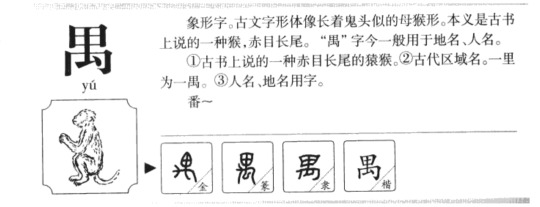
Also, Yu is known for imprisoning Wuzhiqi (無支奇 / 巫支祇), a monkey flood demon, beneath a mountain in Tang and Song-era folklore. This likely influenced Sun Wukong's punishment under Five Elements Mountain.
Therefore, all of this probably led to the author-compiler of the 1592 JTTW associating Monkey's staff with Yu the Great and his efforts to end the world flood.
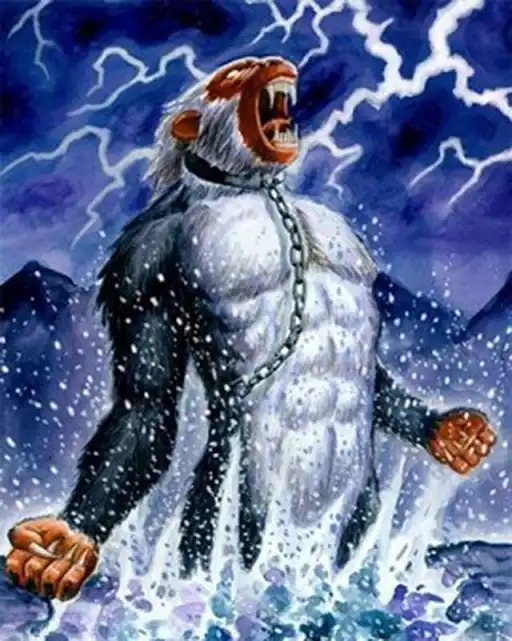
Sources:
Niu, K., Ang, A., Xiao, Z. et al. (2002). Is Yuan in China’s Three Gorges a Gibbon or a Langur? International Journal of Primatology, 43, 822–866. https://doi.org/10.1007/s10764-022-00302-1
Strassberg, R. (2002). A Chinese Bestiary: Strange Creatures from the Guideways Through Mountains and Seas. University of California Press.
#Da Yu#Yu the Great#Sun Wukong#Monkey King#Journey to the West#JTTW#Wuzhiqi#flood demon#monkey#Shanhaijing#Classic of Mountains and Seas#Magic Staff#Ruyi jingu bang#Gold-banded staff#Lego Monkie Kid#LMK
53 notes
·
View notes
Text
Bucchigiri?! Episode 1 Review - Hiroko Utsumi Is Back
After the success that was SK8 The Infinity, Hiroko Utsumi returns with another original anime. She sets aside the skater boys and goes for delinquent boys and genies this time around. Will it live up to the hype surrounding her name and trajectory? It’s only the first episode, so I need to see if it’ll be as great as SK8.
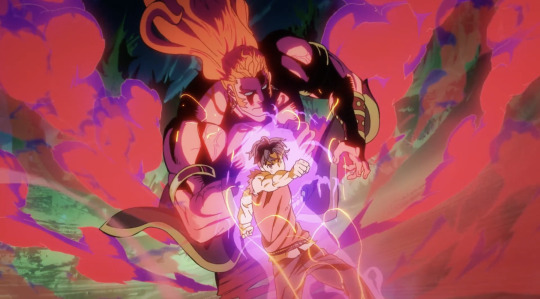
From the first episode alone, I liked it. It’s pretty zany, as true to the Hiroko Utsumi formula of having very illogical premises work. The story is about Arajin Tomoshibi transferring to a delinquent high school in hopes of getting a girlfriend and losing his virginity. He then gets involved in school gang fights. Oh, and he finds a djinni who wants to grant his wish. The genie then gives him tremendous strength as a condition to his wish.
You can see that there are a lot of references to Arabian Nights. Other than the concept of djinns and wishes, you can see that Arajin is very Chinese-themed from his outfit to his family’s restaurant being a Chinese one. This is because the original story of Arabian Nights had Aladdin, the character he’s based on, as a Chinese boy. The buildings in this story are all Arabian-inspired buildings. So, this is actually a very creative part on Utsumi. I’m not too familiar with other Arabian Nights stories, so I’m not sure what other references there are.
There are so many characters to keep up with. However, I do like what I’ve seen so far. Arajin is arguably a bit one-sided at first glance as his only defining trait is his desire to get laid, but there could be a reason why he does this when he’s with Matakara. Matakara is this show’s version of Makoto Tachibana, a nice beefy dude who’s childhood friends with the black-haired MC. However, they had separated for five years before reuniting. Matakara seems like a nice guy—the ways Utsumi writes nice guys is that if they’re nice, they’ll always be nice. The other characters are pretty one-note, but I’m sure I’ll see more later on. The character I’m most interested in is Marito, who is very sultry. However, the best character so far is Arajin’s mother. She’s so cute and a super embarrassing but loving parent.
The djinn is actually a lot cuter than I expected. The trailers had him as this hulking spirit that looks all serious and straight-laced, but he’s very cute. Like, he hangs around Arajin and even watches TV in his house. He’s super chill and friendly, contrary to his appearance. Like, I think he might be the dark horse in terms of stand-out characters because I didn’t expect this character to be so freaking adorable.
What surprises me the most is that Utsumi is actually using a female lead, or a heroine, for this story. If you’re familiar with Utusumi’s works, she really likes ‘fujo-bait’ shows. With Free, there are a few female characters but none of them are too significant other than Gou who isn’t the female lead; the main characters are all male. With Banana Fish, there aren’t that many female characters as the main characters are primarily male; Eiji, a male, is arguably the heroine of the show. With SK8, there are some females, but they’re mainly supporting characters as the show is about guys who like skateboarding. I think this is the first time Utsumi is using a heroine for her works. Mahoro is so important that she’s even the main focus in the ending—this has never happened before. However, how important she will be will depend as she’s mainly a sadistic brocon who gets turned on by her brother Marito beating up her potential suitors.
Because this is animated by MAPPA, the animation is very good. I just hope they’re treating their animators well this time. Workplace abuse is a huge no for me. The anime feels very over the top, but also well-animated in that regard. The fights are handled great, but there’s also the mix of the classic Utsumi fan service sprinkled in; she clearly loves back muscles as she emphasized Matakara’s a lot.
The voice actor choices are actually very surprising. You’d assume there would be a cast of new faces, but not exactly. While there are some new faces like Anna Nagase, there are a lot of veterans and voice actors who aren’t well-known. For example, Arajin’s voice actor, Genki Okawa, was in Yugioh Zexal as Mizael, but other than that, he isn’t a big name. Some big named veterans in the cast are Nozomu Sasaki as Marito; he voiced Johan Liebert from Monster, Eriol Hiiragizawa from Cardcaptor Sakura, and Yusuke Urameshi from Yu Yu Hakusho. Other big names like Kappei Yamaguchi (Inuyasha, Ranma Saotome), Makoto Furukawa (Saitama), and Ryota Takeuchi (Elias from The Ancient Magus’s Bride, Ushijima from Haikyu) are casted here but I don’t know who their characters are because there are so many introduced from the get go. The other voice actors are small names, but I do hope they get big. Everyone deserves a chance at the spotlight!
Overall, I’m a huge sucker for Hiroko Utusumi’s works so I might be a bit biased in this review. However, I can say for a fact that her works are always entertaining to watch. I hope this one is the same. If you’re watching this show, what are your thoughts?
#bucchigiri?!#arajin tomoshibi#mahoro jin#marito jin#matakara asamine#review#anime#anime review#ecargmura#arum journal#senya
50 notes
·
View notes
Text
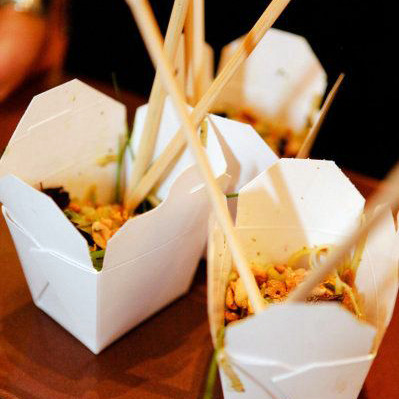
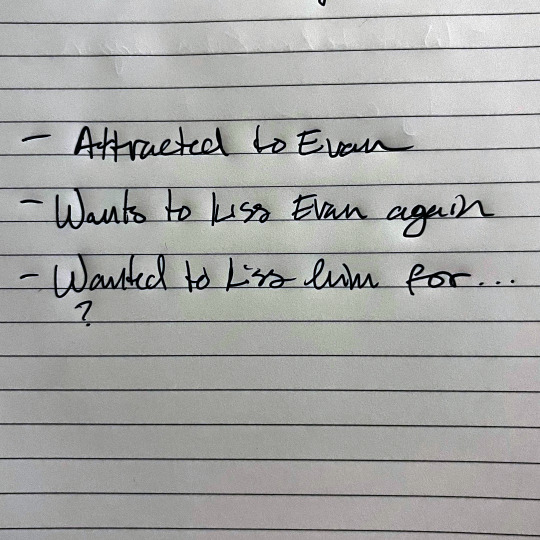
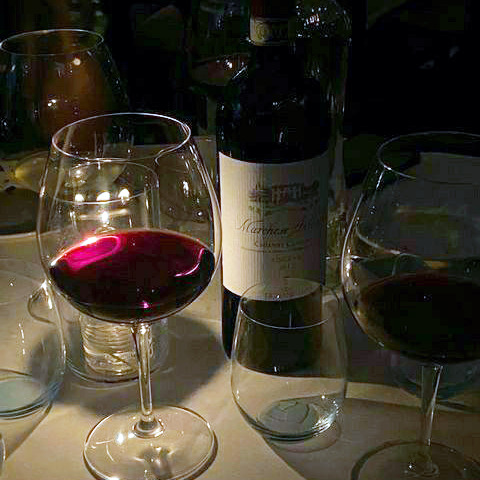
INSPIRATION//SEVERAL SENTENCE SUNDAY
and just like that im writing again 🤪here is some of chapter five i wrote last night
tagged by @hoodie-buck @honestlydarkprincess @loserdiaz @stagefoureddiediaz @hippolotamus @hgejfmw-hgejhsf <3
With Chris on his hip and a Chinese takeout in his other hand he finds Karen on her couch, glass of wine already resting on the coffee table, there is something spacey happening on the TV, probably straight from NASA’s streaming service, and her nose is buried in a book, and her phone is playing classical music. She looks up and barely acknowledges him before holding her hands out for Chris.
“Am I nothing to you?”
“Wine, or whatever other beverage you want, is in the kitchen.” She replies, beginning to play hide and seek with Chris from behind a pillow.
He just half smiles, placing the take out bags on the coffee table and the diaper bag on the floor, before heading to get something to drink. He grabs himself a glass of water and the bottle of wine, knowing that Karen will inevitably want more and ask him to go get it anyway.
“Oh you know me so well, I love you,” she says grinning when he sets the bottle down. “Did you know you have the cutest baby on the planet, excluding my future children of course, but–”
“Our future children you mean,” he interrupts, a shit eating grin on his face. She promptly wacks him on the shoulder with the back of her hand.
She takes a generous sip of wine, playfully rolling her eyes.
And this might be it really, speaking of future relationships and children…what if my future was with a guy? Not that he was picturing dating Evan, let alone a domestic life with him. That was never going to happen.
For the next twenty minutes, Karen points at the space happenings on the TV screen as she explains them to Chris, and Eddie’s focus shifts between bites of food, the denial spiral, and the anticipation anxiety. It finally reaches the point where he just has to spill it, brave it and ask.
“So, um, you know me…better than basically anyone?”
“Is that a question Edmundo, who is this other person, give me names–”
“No one! My point is I have told you details about stuff I would tell no one else.”
“And I have told you the same.”
He swallows, “Do you think I could be queer?”
She pauses, her chopsticks gently landing in her fried rice, and then slowly placing it back on the coffee table. She considers him for a moment, as if flipping through the catalog of their conversations, interactions, every detail she knew from over the years. It was obvious she was taking this seriously.
“Not entirely out of the question.” She picks up her food again smiling at him. “What could have possibly brought this question to your mind?”
tagging: @eddiebabygirldiaz @giddyupbuck @dijkstraspath @disasterdiaz and anyone else who wants to play!
#maathp#seven sentence sunday#inspiration saturday#chap. 5#idk how i feel about this chapter so far ughh
29 notes
·
View notes
Note
I absolutely adore the chef/sommelier au and always find so much comfort in your writing. i have a few questions/prompts if you’re interested in any of these:
1) how did they meet? were they part of the same circles and crushing from afar until they finally had the chance to work together? or did they have a more classic meet cute?
2)Ava mentions that she knows Beatrice prefers to eat in the kitchen rather than the restaurant and I would be curious about any backstory behind how Ava came to learn this.
3) one of those foodie travel adventures where they eat their way through X city or cities
ok so this is no1 but has hints of the other two (which i love & will maybe write later!)
also i guess... this turned into platonic bea & lilith are in love. who knows lol
//
you've known beatrice for so long now, you really should've seen this coming.
for as annoying as she is, she's remarkably talented — something that had made you frustrated with her, and yourself, for years during culinary school. beatrice's food is true to who she is: wholly precise and quietly playful, elegant and creative, and really, really warm. thoughtful. surprisingly fun. you've always been able to tell: your technical skills are the best in the world, better than hers or anyone else you've ever met, and your palette is exquisite; you run a kitchen with quiet authority, and each dish comes out on time, exactly as it's supposed to. you are very good at your job. but beatrice makes food — elevated chinese and european fusion dishes, whatever she's most interested in at the moment — that makes you want to cry in its capacity to comfort. not that you would ever admit it, but you have stepped away to the bathroom on a handful of occasions to do just that.
she's more your sister than anything else — your little sister, you make sure to remind her — and so when chef superion had essentially ordered — encouragingly — beatrice into opening her own restaurant after five years of being chef de cuisine and, really, being the quiet driving force behind those three michelin stars, it hadn't even been a question to you that you would go with her. that you would help with the menu and everyday operations; the design and hours of operation; the sustainable sourcing for all of your dishes that she's always been so invested in. that part, while exhausting, had been fairly easy: mary and shannon, who own an urban farm, had been thrilled to partner, and you came up with a collaborative menu together. you were able to secure local seafood from a few suppliers, local ethical meat from your favorite butcher. camila, admittedly your favorite chef from superion's, young and absolutely kind, had agreed to come on and do pastry. you and beatrice had hired yasmine as your sous, trustworthy and smart.
you've been elbow-deep in planning — food, interior, front of house, all of it — for months. you're pretty sure beatrice works, like, twenty hours a day, and doesn't do anything but that. she eats takeout quickly in the kitchen, standing over a trashcan. every friday you barge into her condo and force her to eat greasy pizza and watch reality tv and share a joint. a year or so ago she had asked you to buzz her hair for her and you still do now, weekly, because she's neat and confident and loves efficiency and, according to many, many women unfortunately saying this to you directly whenever you drag her out for drinks, it's hot. she takes you to doctor's appointments and picks up your dry cleaning; she's the only person you let sharpen your knives for you, and the only person you'll share a bed with overnight if you're too drunk or stoned or tired to go home. she never says anything, never minds, just grumbles when her alarm goes off and grumbles sleepily in chinese while she makes herself an espresso.
and so, really, it's your fault. you should've known. you're not sure how you should've known, but you definitely should have.
'so,' you say, lowering yourself into the chair across from her immaculately neat desk in her office in the back, 'i think i found us a sommelier.'
your drinks menu is one of the last things you have to finalize, and beatrice has been so fucking picky about who to bring on to do so. cocktails hadn't been that hard; hans is competent and creative. but the wine pairings have been a pain in your ass: one sommelier was too old to have fresh, exciting ideas; one was a cis white man so beatrice automatically vetoed that, which, honestly, you didn't hate and definitely should've seen coming.
'and who is it?'
'ava silva,' you say, flick open your tablet to his profile: ava is young and renowned already, and has experience with local, natural wines and restaurants all over the world, especially europe, brazil, and east asia. she is, you realize later with a heartfelt deep annoyance, beautiful.
'ava silva,' beatrice repeats. she reads through ava's profile, her accomplishments and accolades and references. 'they worked with taian table.' beatrice hums. 'i've heard of them.'
'yeah.' you force yourself not to roll your eyes at her reluctance.
'ava is available to meet for a consult?'
'tomorrow, if you want. i can take care of the oyster tasting if that helps.'
she laughs, and you let yourself crack a smile. 'i don't even want to be a part of your oyster tasting, lilith.'
'just because i have fun —'
'sleeping with our supplier better not backfire on us, that's all i have to say.'
and maybe you should've realized right then, when beatrice's eyes lingered on ava's professional headshot on her website, on her impressive accolades. 'i am a consummate professional,' you tell beatrice.
she shakes her head, fondly, and leans back in her chair, runs a hand over her hair. 'fine,' she says, 'i'll take the meeting with ava.'
'great,' you say, relieved in the moment. 'what's the worst that can happen?'
/
very soon, unfortunately, you find out: beatrice is fucking insufferable. ava is even more insufferable, flirting with horrible humor and fond, relentless teasing. beatrice is, somehow, blushing and stumbling around like a schoolgirl, despite her attempts at being a serious, focused chef. she burns her hand on a pot, sets a towel on fire, and spills a red wine reduction all over her favorite apron the first time ava is coming to try a few dishes on the menu.
'jesus christ,' you say, maybe a little bit of a prayer, 'what the fuck, chef?'
beatrice groans. 'ava is... pretty.'
she says it reluctantly, like it's terrible to admit. ava is definitely annoying, but even you have eyes. 'yes, we all know after having to watch you fumble around during one meeting that you think ava is pretty.'
'and,' she says, a blush spreading across her cheeks and down her neck, 'he's smart, and funny, and has an amazing palette.'
'well, he better.' you deflate a little; it's disarming to see beatrice this nervous, especially when it has nothing to do with her food being reviewed or rated. 'listen, beatrice,' you say, trying your very hardest to be gentle, just this once, 'this menu is gorgeous. i came up with eighty percent of it —'
'— you did not —'
'— so i can assure you that ava will love it, and that we can pair wines that will be excellent. and don't tell anyone i said this, or i legitimately will kill you, but you're an... impressive person. you're a remarkable chef. ava would be a fool to not see that.'
beatrice lets out a big breath. 'okay.'
'plus, it's kind of fun to see you trip all over yourself because of a crush.'
'i'm going to go change now.'
'yes, because you spilled because of a crush.'
'see you later, lilith.'
'yeah, yeah,' you say. 'i'll make sure to overcook the egg noodles, just for you.'
/
it's your fault, for sure, because you said yes to doing the food at their wedding — to make it worse, excitedly. it's gorgeous and it's a huge pain in your ass because there's, like, every cool chef in the world there, and a ton of Wine People, and beatrice has been traveling with ava filming something, so you've been running the restaurant. but still, beatrice gives you a hug and ava, terribly, kisses your cheek. they're both beautiful, and their backyard is full of edible flowers and herbs and vines with wine grapes. at one point, beatrice snags you by the hand to dance with her, which you protest for posterity and eventually give up on, as you always would have anyway. as you always have.
'thank you,' she says, 'for this. it's the best meal i've ever eaten.'
'i'm certain that's not true.'
she shakes her head; she's tan and has more freckles than you've ever seen on her, stretching across her cheeks — they'd gotten to film in brazil, apparently, where ava is from. but here it is, really: the whole world, right there, and beatrice has chosen to love you. she's chosen to want you as her sister, and you have always chosen her back.
'i'm really glad you're happy.'
'thank you,' she says. 'i am so happy.'
you roll your eyes. 'i know. it's nauseating.'
'lil.'
'after all of this, i want two weeks off when you're back from your honeymoon.'
'done.'
'well, a positive outcome, at the very least.'
she laughs.
'it's my fault, anyway. if i had just found a less beautiful, boring, straight sommelier...'
'i'm going to go dance with my wife now,' she says. 'love you.'
'yeah, yeah.' you squeeze her hand, linger for a moment in how softly she says wife, just because it's gentle and sweet and you don't hate seeing her this happy. 'love you too.'
#wn#wn fic#avatrice#avatrice fic#before anyone asks no i will not write them romantically i simply do not have the desire or the range lol#but i guess in this entirely unplanned universe they are Sisters! Partners! In a v particularly fond kind of love!#bea n lilith grumbling soulmates#restaurant au
115 notes
·
View notes
Text
[Hanfu · 漢服]Chinese Song Dynasty (960–1279 AD)Traditional Clothing Hanfu Reference to Song Dynasty Murals
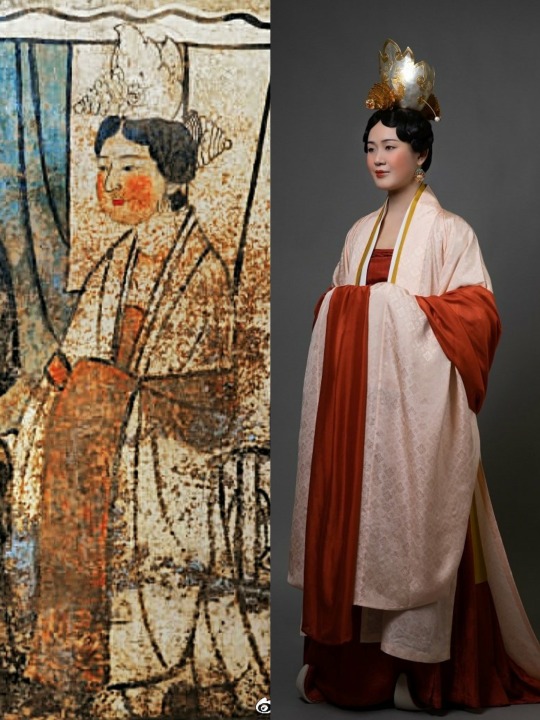
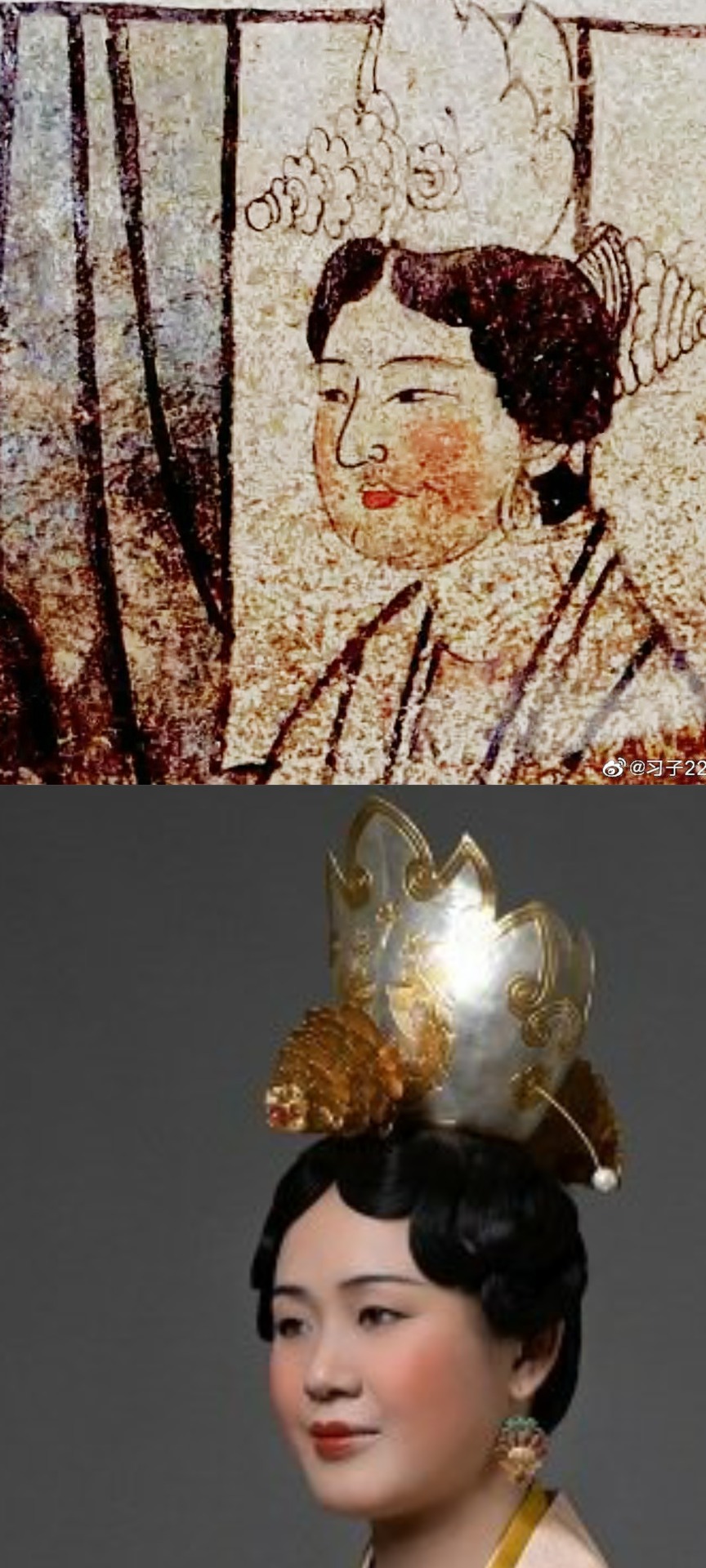

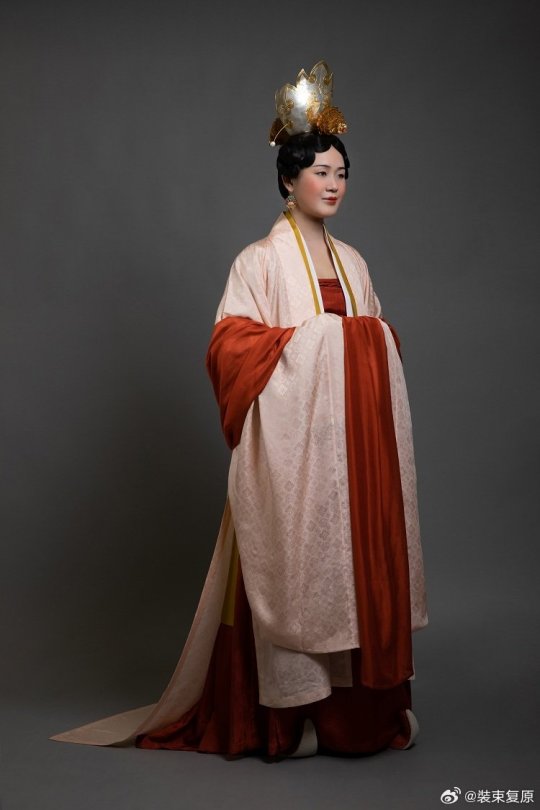
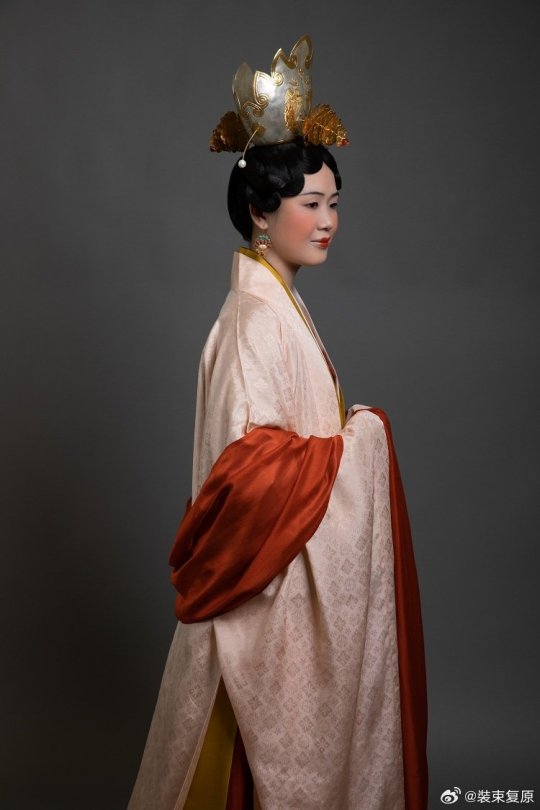
【Historical Reference Artifacts】:
Woman in the murals of the Song Dynasty tomb in Tangzhuang, Dengfeng, Henan,China.
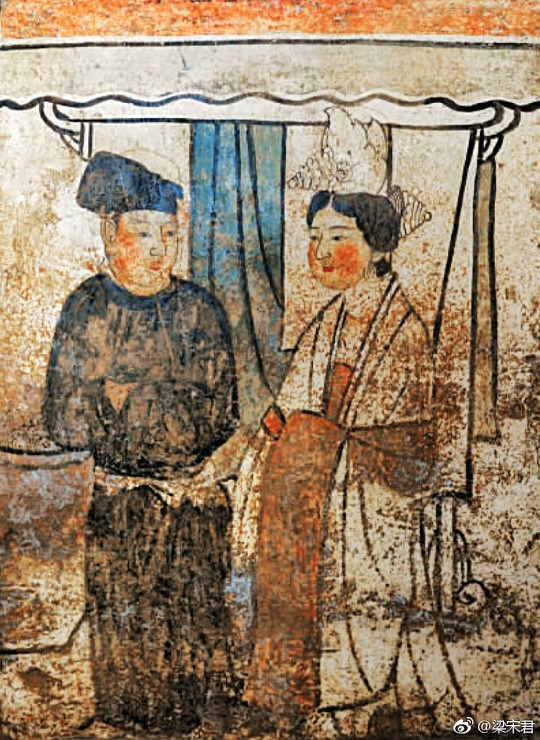
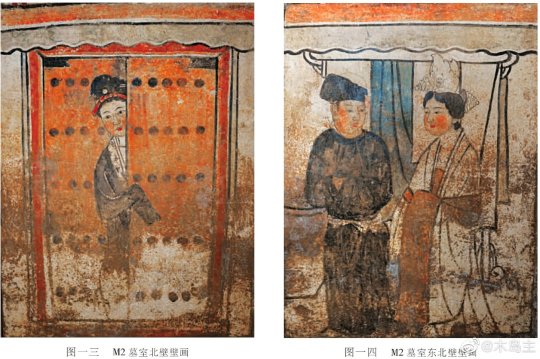
【Histoty Note】Song Dynasty (960–1279 AD)·Woman Formal Garment
The large-sleeved shirts and skirts of the Northern Song Dynasty were based on the long blouses and skirts of the late Tang and Five Dynasties, and became more refined and gradually became more ritualized. At the same time, the trend of women wearing crowns became more and more popular, and a variety of crown styles and matching hairstyles were developed.
The restoration of this outfit refers to the image of a woman in the murals of the Song Dynasty tomb in Tangzhuang, Dengfeng, Henan: her head is combed in a bun, with clouds shape hair around her temples, and a crown, which is fixed with flower hairpins on the front and back, and pearl hairpins on the left and right; Wearing a sleeved blouse, a long skirt, and a silk scarf was the attire of the common people and women attending formal occasions at that time.
At that time, married women often wore crowns, long-sleeved shirts and skirts, and shoulder-wrapped scarf when attending formal occasions or when common women got married. It gradually developed into a classic paradigm, which had an impact on popular fashion and the system of public service.
The "golden crown and xiapi金冠霞帔" that often appeared in literary works of the Song and Yuan Dynasties was developed from this classic ceremonial attire.
________________________________
📸Recreation Work:@裝束复原
🔗Weibo :https://weibo.com/1656910125/NdlVDn8JP
________________________________
#chinese hanfu#Song Dynasty (960–1279 AD)#hanfu#hanfu accessories#hanfu_challenge#chinese traditional clothing#china#chinese#chinese historical fashion#chinese history#hanfu history#漢服#汉服#中華風#Woman Formal Garment
191 notes
·
View notes
Text
[Book Rec + Reaction/Thoughts] The Lantern and the Night Moths 灯与夜蛾 by Yilin Wang
An anthology of translated poems by five modern or contemporary poets and accompanying essays by the translator, @yilinwriter.
You can find the pronunciation guide and list of corrections here!
The cover art, a beautiful expression of the tone of this collection, is by Taiwanese artist Ciaoyin (check out her gorgeous insta!). I'm looking forward to the arrival of the physical book as my tab absolutely does not do it justice xD

Anyway! The official release date is 02 April 2024 though there have been some very thoughtful reviews by early readers already. Here, here, here and here.
(It was an ARC that I received too… though in the time it took to put this together, the ebooks have already gone out to readers >.< typical snail yj!)
Instead, I’ll tell you who I think would be interested in this book or might benefit from reading it, then share things that are cool about it from the perspective of a bilingual hobbyist translator + lover of ancient poetry and lyrics.
Who should read it?
If annotations, translator’s notes and reflections spark joy for you...
If you’ve ever read poetry translations and been intensely curious about what goes on under the hood...
If you’re a translator yourself wanting to hear another voice...
Definitely check this out!
Also if you’re CN+EN bilingual and have ever read something in English that references Chinese terms and concepts etc. except ONLY in English, pinyin or wade-giles and been utterly frustrated by the ensuing guessing game (like me) Fear Not.
That will not be a problem here.
I really appreciate how Chinese words are used naturally where needed for concepts and quotes - they are also translated for those who can't read Chinese so no one is left out. It made this book of and about translation (and more) super comfortable to read! The solution is so simple, so direct, so rarely used that I am amused.
Oh, but do note that the Chinese characters are in simplified though!
The poems are organised by their writers who are listed here by order of birth year, not appearance in the book:
秋瑾 (Qiu Jin, 1875 to 1907)
废名 (Fei Ming. 1901 to 1967)
戴望舒 (Dai Wangshu, 1905 to 1950)
小西 (Xiao Xi, 1974 to _)
张巧慧 (Zhang Qiaohui, 1978 to _)
Altogether, that covers nearly the last 150 years up to now. I’ve never really been into poetry by poets in such relatively recent times, in part because I’d been holding on to this stereotype of them spurning Classical Chinese and ancient poetry in the first half of the 20th century (not entirely true, as I came to realise xD). It made sense and was understandable, but felt sad.
Yet am I the target audience for this book?
Very much so.
In ways I didn’t think I would be too! It was so much fun to experience this both as a reader and a translator that I thought I’d share it here, where we are appreciating Chinese poetry together.
If you didn’t think you’d enjoy modern Chinese poetry, hey, give it a chance!
Oh yeah - on the way home a while back, I was talking to a friend about translation and was surprised to hear that her impression was that it ought to be a straightforward process. Like isn’t it a 1:1 conversion? At some point, ‘what’s the difference between something google translate might return, and how you would say it?’ was asked, and oh that was a delightful question to my ears! I showed her one of my comparison sheets where an original text is laid out alongside multiple translations line-by-line, briefly explaining some common and unique choices and how the people who had translated those probably arrived at the various interpretations. She was pretty amazed to see that the answer to her question was: very different. Hey, it’s a complicated process!
But there’s only so much one can explain in the space of a train ride. That’s why The Lantern and the Night Moths is a book I would also rec to someone like this friend of mine - open minded and curious but never having the chance to think about or encounter the craft of translation.
Like Yilin says, ‘the meaning of a word cannot be fully expressed in one single translation, nor through a series of translation attempts’. She then explains why with great attention to detail and some solid examples from one of the poems with word choices loaded with subtle connotations :D
What's interesting about it?
Okay, for one, Yilin shared a playlist of music that she listened to while working on this book. Here is the link to the spotify one and the one on youtube. Check them out! They sure put me in the mood to read xD (favs: 别知己, 小神仙 & 去有風的地方) Afterwards, this made so much sense like - ah! an audio moodboard.
She's also putting together these adorable mini profiles of each poet along with a cmedia and tea rec to match their vibes. Go see them on her instagram xD
Now to business...
structure
What really helped keep the reader’s focus was the way each section is organized, how the poems and accompanying essay were presented and finally the short bio of each person right at the end.
The poets are first introduced through five or six of their poems, works well suited to this purpose. Their voices, distinct through the vision, ambition and emotion of their words, are brought across by Yilin’s sensitive, thoughtful and poetic translations into English. These translations were also creative and transformative in a way that made so much sense after reading one of her reflections on the process, how she ‘must guide it with gentle hands to ensure its spirit is kept alive and intact during this transformative, and often excruciating process’. A rebirth into another language!
Personally, I’ve come to think of reading translations as looking at a work through another’s eyes. So it’s delightful when the translator’s presence is discernible, and even more so when the reader is given insight into their intention and process via commentary.
Yilin’s essays coupled with the poets’ bios at the end provide a means to go back and appreciate their works in context of their circumstance and inspirations. Similarly, to read the translations with a changed perspective.
I don’t know how much of a thing this is with translated poetry anthologies in English - can count the number I’ve read with both hands lol, and they’re all of the ancient chinese poetry variety - but I really like this design.
drawing on poets who came before them
Remember how we’re always recognizing traces of inspiration from ancient works (to them) in poetry of the various dynasties? 李商隐 Li Shangyin of Tang for example, was influenced by 楚辞 Verses of Chu and folklore and mythology such as that in 山海经 Classic of Mountains and Seas, 李白 Li Bai frequently references poets and history of the 魏晋 Wei-Jin era, and 王维 Wang Wei was clearly familiar with Buddhist scriptures which were translations themselves!
Just like the late Táng poets whom he praised for boldly deviating from the voices before them, Fei Ming used popular references and tropey shorthands ‘in contexts utterly different from the original, reimagining them anew’. Dai Wangshu, too, ‘boldly re-envisioned what modern poetry could look like by revisiting the classics’. In fact, in his very relatable ‘To Answer the Visitor with Classical Imagery’, I see Li Bai’s 春夜宴桃李园序, Qu Yuan’s 离骚 and lots of - as the title says - classical imagery, as if pulling out painting after painting to describe a feeling.
And Dai Wangshu’s faith in the translatability of poetry, that ‘poetry isn’t what is lost in translation, but rather, what survives it’ reminds me of what a friend, @xiakeponz, said that I agree with so much - because readers can ‘experience something in their own individual way through (your) shared humanity rather than language alone’.
poetic tradition and beyond
Between the lines of contemporary poets Zhang Qiaohui and Xiao Xi, I can really see the charm of plain vernacular, how it can be beautiful, incisive and clever in turns. Even as it seems to have moved further than ever from the structure and language of literary Chinese, the themes that inspired common motifs remain a part of life. Mother and divinity, homesickness, finding oneself, tributes to admirable spirits and the issues that trouble society - just in a new form and with different ways of expression.
Qiu Jin
So many FEELINGS about what Qiu Jin was doing - ‘I awaken the spirits of women, hundreds of flowers, abloom’. I would love if she could see the world now. So many things for her to rouse and fight against, but at the same time just as many to be proud of. I am so in awe of her, but now hearing her loneliness and struggle there is a soft spot in my heart for those too.
conclusion
So so so…
Qiu Jin’s admirable fire and lonely resolve. Zhang Qiaohui’s precious ability to express beauty in the mundane and in pain. Fei Ming’s utter delight! He is having so much fun and when* I’m vibing, I feel it too. Xiao Xi’s critical eye and keen observation of the world. Dai Wangshu’s whimsical charm and passion for translation. Finally, Yilin Wang, the connecting thread wound through them all, bringing them together so that we may be acquainted.
*Reading his poetry is like unwrapping a seamless, many layered present. A gift that keeps giving - if only you have a key 😅 Fortunately, Yilin has halved our struggle 🤣
I’ve had such a great time with them all. And if you come, I hope you will too!
#The Lantern and the Night Moths#chinese poetry#Yilin Wang#poetry in translation#灯与夜蛾#Qiu Jin#Zhang Qiaohui#Fei Ming#Xiao Xi#Dai Wangshu#rambly reviews#i read from Fei Ming onwards on my kobo LOL but that one has no colour so...#i might do more of these review-y rambles about poetry things if y'all are interested?#i've been reading LOL#some are chinese some are english#all of them fun and enlightening
31 notes
·
View notes